

Freddie Mercury
- Born September 5 , 1946 · Stone Town, Zanzibar, Tanzania
- Died November 24 , 1991 · Kensington, London, England, UK (bronchopneumonia)
- Birth name Farrokh Bomi Bulsara
- Height 5′ 9¾″ (1.77 m)
- Freddie Mercury was born on the Tanzanian island of Zanzibar. His parents, Bomi and Jer Bulsara, sent him off to a private school in India, from 1955 til 1963. In 1964, he and his family flew to England. In 1966 he started his education at the Ealing College of Art, where he graduated in 1969. He loved art, and because of that, he often went along with his friend Tim Staffell, who played in a band called Smile. Also in this band where Brian May and Roger Taylor . When Staffell left the band in 1970, Mercury became their new singer. He changed the band's name into Queen , and they took on a new bass-player in February 1971, called John Deacon . Their first album, "Queen", came out in 1973. But their real breakthrough was "Killer Queen", on the album "Sheer Heart Attack", which was released in 1974. They became immortal with the single "Bohemian Rhapsody", on the 1975 album "A Night At The Opera". After their biggest hit in the USA in 1980 with "Another One Bites The Dust", they had a bad period. Their album "Flash Gordon" went down the drain, because the movie Flash Gordon (1980) flunked. Their next, the disco-oriented "Hot Space", was hated not only by rock critics but also by many hardcore fans. Only the song "Under Pressure", which they sang together with David Bowie , made a difference. In 1983, they took a year off. But, in 1984 they came back with their new album called "The Works". The singles "Radio Ga Ga" and "I Want to Break Free" did very well in the UK but a controversy over the video of the latter in the USA meant it got little exposure and flopped. Plans to tour the USA were cancelled and the band would not recover their popularity there during Mercury's lifetime. In April 1985, Mercury released his first solo album, the less rock-oriented and more dance-oriented "Mr. Bad Guy". The album is often considered now to have been a flop, but it actually wasn't. It peaked at number six in the UK and stayed on the chart for 23 weeks, making it the most successful Queen solo project. The band got back together again after their barnstorming performance at Live Aid (1985) in July 1985. At the end of the year, they started working on their new album, "A Kind Of Magic". They also held their biggest ever world tour, the "Magic Tour". They played Wembley Stadium twice and held their very last concert in Knebworth, in front of 125.000 people. After 1986, it went silent around Queen. In 1987, he was diagnosed with AIDS but he kept working at a pace. He released a cover of the 1950s song "The Great Pretender", which went into the UK top ten. After that, he flew to Spain, where he made the magnificent album "Barcelona", together with Montserrat Caballé , whom he saw performing in 1983. Because Mercury loved opera, he became a huge fan of her. For him, this album was like a dream becoming reality. The single "Barcelona" went huge, and was also used as a theme song for the 1992 Olympics in Barcelona. After "Barcelona", he started working with the band again. They made "The Miracle", which was released in early 1989. It was another success, with hits such as "Breakthru", "I Want It All", "The Invisible Man" and the title track. At this point, Mercury told the band he had AIDS, meaning that a tour of the album was out of the question. After Mercury told the band, he refused to talk about it anymore. He was afraid that people would buy their records out of pity. He said he wanted to keep making music as long as possible. And he did. After "The Miracle", Mercury's health got worse. They wanted to do one more album, called "Innuendo." They worked on it in 1990 and early 1991. Every time when Mercury would feel well, he came over to the studio and sang. After "Innuendo" was released in January 1991, they made two video clips. The first one was the video clip of "I'm Going Slightly Mad", shot in March 1991. Because Mercury was very thin, and had little wounds all over his body, they used a lot of make-up. He wore a wig, and the clip was shot in black and white. Mercury's final video clip was released in June 1991. The clip, "These Are The Days Of Our Lives", later turned out to be his goodbye song, the last time he appeared on film. You could clearly see he was ill, but he still hadn't told the world about his disease. Rumours went around that he some kind of terrible disease. This rumor was confirmed by Mercury himself, one day before he passed on. His death was seen as a great loss for the world of popular music. - IMDb Mini Biography By: [email protected]
- Children No Children
- Parents Jer Bulsara Bomi Bulsara
- Relatives Kashmira Cooke (Sibling) Kashmira Cooke (Sibling)
- Sings with the top half of microphone stand
- Loved to do a vocal duet with the crowd, especially before "Under Pressure"
- Placing microphone under his belt
- Wide-ranging, multi-octave, powerful pseudo-operatic vocals
- He used a piano as a headboard for his bed and taught himself to play the piano backwards so if a song idea popped into his head when lying in bed, he could reach backwards and play it or record it.
- He had a vocal range of 4 octaves.
- Queen 's performance at Live Aid (1985) was voted the "World's Greatest Concert" in a 2005 poll for Channel 4 in the U.K. The historic gig fought off competition from Jimi Hendrix 's 1969 Woodstock show in second place and Sex Pistols ' raucous show at the Manchester Free Trade Hall in 1976.
- He wrote the Queen song "Love of my Life" about Mary Austin .
- He penned the hits "Killer Queen", "Bohemian Rhapsody", "Somebody To Love", and "Crazy Little Thing Called Love". He wrote "Crazy Little Thing Called Love" in the bathtub.
- If I didn't do this well, I just wouldn't have anything to do...I can't cook, and I'd be a terrible housewife.
- I'm just a musical prostitute my dear
- The bigger the better; in everything.
- Years ago, I thought up the name Queen...It's just a name, but it's very regal obviously, and it sounds splendid...It's a strong name, very universal and immediate. It had a lot of visual potential and was open to all sorts of interpretations. I was certainly aware of the gay connotations, but that was just one facet of it.
- [speaking in 1974] I am as gay as a daffodil.
Contribute to this page
- Learn more about contributing
More from this person
- View agent, publicist, legal and company contact details on IMDbPro
More to explore

Recently viewed
Biography of Freddie Mercury
Paul Natkin/WireImage
- Top Artists
- Holiday Music
- Alternative Music
- Classical Music
- Country Music
- Rap & Hip Hop
- Rhythm & Blues
- World Music
- Heavy Metal
- Latin Music
Farokh "Freddie" Mercury ( September 5, 1946 - November 24, 1991) was one of the most acclaimed rock vocalists of all time with the rock group Queen . He also wrote some of the group's biggest hits. He was one of the highest profile victims of the AIDS epidemic.
Freddie Mercury was born Farokh Bulsara on the island of Zanzibar, now part of Tanzania, when it was a British protectorate. His parents were Parsis from India and, along with his extended family, were adherents of the Zoroastrian religion.
Mercury spent much of his childhood in India and began learning to play the piano at age seven. When he was eight years old, he was sent to a British boarding school near Bombay (now Mumbai). When he was twelve years old, Freddie formed his first band, The Hectics. They covered rock and roll songs by artists like Cliff Richard and Chuck Berry .
Following the 1964 Zanzibar Revolution in which many ethnic Arabs and Indians were killed, Freddie's family fled to England. There he entered art college and began a serious pursuit of his musical interests.
Personal Life
Freddie Mercury kept his personal life out of the public spotlight during his lifetime. Many of the details about his relationships emerged after his death. In the early 1970s, he began arguably the most important and enduring relationship of his life. He met Mary Austin and they lived together as a romantic couple until December 1976 when Mercury told her about his attraction to and relationships with men. He moved out, bought Mary Austin her own home, and they remained very close friends for the rest of his life. Of her, he told People magazine, "To me, she was my common-law wife. To me, it was a marriage. We believe in each other, that's enough for me."
Freddie Mercury never mentioned his sexual orientation when he rarely spoke to the press, but many associates believed it was far from hidden. His performances were very flamboyant on stage, but he was known as an introvert when not performing.
In 1985, Mercury began a long-term relationship with hairdresser Jim Hutton. They lived together for the last six years of Freddie Mercury's life and Hutton tested positive for HIV a year before the star's death. He was at Freddie's bedside when he died. Jim Hutton lived on until 2010.
Career With Queen
In April 1970, Freddie Bulsara officially became Freddie Mercury. He began performing music with guitarist Brian May and drummer Roger Taylor who were previously in a band named Smile. The next year, bass player John Deacon joined them and Mercury chose the name Queen for the new band against the reservations of his fellow band members and management. He also designed for the group, which incorporated symbols for the zodiac signs of all four group members into a crest.
In 1973 Queen signed a recording contract with EMI Records. They released their self-titled first album in July, and it was heavily influenced by the heavy metal of Led Zeppelin and progressive rock by groups like Yes . The album was well-received by critics, broke into album charts on both sides of the Atlantic, and was eventually certified gold for sales in both the U.S. and U.K.
With their second album Queen II , released in 1974, the group began a string of fourteen consecutive top 10 charting studio albums at home in the U.K. The streak continued through their final studio release, 1995's Made In Heaven .
Commercial success came a little more slowly in the U.S., but the group's fourth album A Night at the Opera hit the top 10 and was certified platinum on the strength of the legendary hit "Bohemian Rhapsody," a mini-opera wrapped in a six-minute rock song. "Bohemian Rhapsody" is often listed as one of the greatest rock songs of all time.
The peak of Queen's pop success in the U.S. took place in 1980 with the #1 charting album The Game, featuring two #1 pop hit singles "Crazy Little Thing Called Love" and "Another One Bites the Dust." It was the final top 10 album in the U.S. for the group, and Queen failed to reach the pop top 10 again with later studio singles.
In February 1990, Freddie Mercury made his final public appearance with Queen to accept the Brit Award for Outstanding Contribution to British Music. A year later they released the studio album Innuendo . It was followed by Greatest Hits II released less than a month before Mercury's death.
Solo Career
Many fans of Queen in the U.S. are unaware of Freddie Mercury's career as a solo artist. None of his singles were significant hits in the U.S., but he had a string of six top 10 pop hits in the U.K.
The first Freddie Mercury solo single "I Can Hear Music" was released in 1973, but he didn't approach solo work with serious dedication until the release of the album Mr. Bad Guy in 1985. It debuted in the top 10 on the U.K. album chart and received strongly positive critical reviews. The style of the music is influenced heavily by disco in contrast to the majority of Queen's music being rock. He recorded a duet with Michael Jackson that was not included on the album. A remix of the album's song "Living On My Own" became a posthumous #1 pop hit in the U.K.
Between albums, Freddie Mercury released a series of singles including a cover of the Platters' classic "The Great Pretender," a top five pop smash in the U.K. Mercury's second solo album Barcelona was released in 1988. It was recorded with Spanish soprano Montserrat Caballe and combines pop music with opera. The title track was used as an official song for the 1992 Summer Olympics held in Barcelona, Spain a year after Freddie's death. Montserrat Caballe performed it live at the opening of the Olympics with Mercury joining her on a video screen.
By 1990, despite denials, Mercury's low public profile and gaunt image fueled rumors about his health. He was visibly weakened when Queen accepted their Outstanding Contribution to Music honor at the Brit Awards in February 1990.
Rumors that Freddie Mercury was ill with AIDS spread throughout early 1991, but his colleagues denied the truth in the stories. After Mercury's death, his bandmate Brian May revealed that the group knew of the AIDS diagnosis long before it became public knowledge.
Freddie Mercury's final appearance in front of a camera was the Queen music video "These Are the Days Of Our Lives" filmed in May 1991. In June, he chose to retire to his home in west London. On November 22, 1991, Mercury released a public statement through Queen's management that, in part, said, "I wish to confirm that I have been tested HIV positive and have AIDS." Just over 24 hours later on November 24, 1991, Freddie Mercury died at age 45.
Freddie Mercury's singing voice has been celebrated as a unique instrument in the annals of rock music history. Although his natural voice was in the baritone range, he often performed notes in the tenor range. His recorded vocals extended from low bass to high soprano. The Who's lead vocalist Roger Daltrey told an interviewer that Freddie Mercury was, "the best virtuoso rock 'n' roll singer of all time. He could sing anything in any style."
Freddie also left behind a catalog of phenomenal hits in a range of musical styles, including "Bohemian Rhapsody," "Crazy Little Thing Called Love," "We Are the Champions," and "Somebody To Love" among many others.
Extravagantly theatrical live performances endeared Freddie Mercury to live concert fans around the world. He influenced generations of rock performers with his ability to connect directly with an audience. His performances leading Queen at Live Aid in 1985 are considered to be among the top live rock performances of all time.
Freddie Mercury stayed silent about AIDs and his own sexual orientation until just before his death. His intention was to protect those close to him in an era in which AIDS carried a heavy social stigma for its victims and their inner circle of friends and acquaintances, but his silence has also complicated his status as a gay icon. Regardless, Mercury's life and music will be celebrated for years to come, both in the gay community and in rock history at large.
- Top 10 LGBT Singers of All Time
- Top 20 Rock Singers of All Time
- Top 10 Irish Pop Groups
- Top 10 Albums of 1980
- 100 of the Best Pop Songs of All Time
- Top 20 Girl Groups of All Time
- The Top 40 Pop Artists of All Time
- Top 30 Boy Bands of All Time
- Biography of Dusty Springfield, British Soul Singer
- Top 10 Songs of 1995
- The 10 Best David Bowie Songs of All-Time
- Profile of the Ramones
- Top 10 Pop Songs for Spring
- Top 20 Summer Albums of All Time
- One Direction Music Videos
- Top 10 Best Novelty Songs
"I've lived, I really have. I've done it all. I love the fact that I make people happy": The life and times of rock's most outrageous star, Freddie Mercury
How a shy kid from Zanzibar helped propel Queen to superstardom
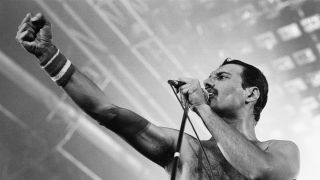
One day back in the late 80s, I saw Freddie Mercury in the street. Appropriately, it was in Kensington High Street, close to his house and also to the spot where he and Roger Taylor had begun their now famous market stall. Freddie looked like he was arriving for a bash at the Roof Gardens. It was an early evening in summer. Suddenly there he was, a slight man, but upright and barrel-chested, and with a black moustache that seemed to take up at least half of his bony face.
Like many very famous people, there was a hubbub about him, and a sense of expectation. One of his pet hates was supposed to be getting recognised in public, but as the bystanders spotted him he gave everyone a small wave and a flash of those big old gnashers before gliding off. And then, remarkably, a round of applause broke out. Freddie looked back and smiled again, obviously pleased. This was post- Queen's Live Aid triumph and pre-AIDS, and smack in the middle of Queen ʼs second golden era, a time when this seemingly unimposing man could hold football stadiums full of people in his thrall.
Itʼs easy now to remember Freddie Mercury just as he was in his later years: fey and restrained, rarely seen, reclining in luxury with his cats and his jewellery. Even before the burdens of terminal illness he gave the impression of a man whoʼd had his fill. In the rare interviews he gave there was no Radiohead -style introspection, but instead an affecting sadness.
But in his pomp – open-chested leotard, ballet slippers, mad mop of black hair, teeth courtesy of Red Rum – Freddie Mercury and Queen were a gloriously unashamed metal band. They were a bravura show, mad and excessive enough for NME ʼs famously humourless journalist Nick Kent to call them “a bucket of urine”. But Freddie was special, he knew it, and he didnʼt give two hoots who knew that he knew it, either.
“Freddie Mercuryʼs a pretty regular guy,” NME reported back in 1974, with a complete lack of prescience. “He uses regular Biba black nail varnish, regular black eye liner, and straightens his hair with regular electric tongs. You get the idea that heʼs bored with being told that Queen are going to be big – he reckons heʼs a star now, and wears that star apparent attitude like a well-fitted pair of trousers. Freddieʼs not bent, just camp. Ask him if heʼs queer and heʼll turn round and say: Iʼm as gay as a daffodil, dear.ʼ He has a habit of saying dearʼ at the end of every sentence. Drummer Roger Taylor expounds: Freddieʼs just his natural self: just a poof, really.ʼ”

Freddie Mercury was Britain’s first Indian rock star. This fact and the nature of his sexuality were the two areas of his short life about which he would be intentionally obscure. Although he was born on the East African island of Zanzibar on September 5, 1946, his parents were both Indian; they were Parsees from Gujarat. Mercury would often make note of his Persian roots, but the Parsees had been driven from Persia a thousand years before.
They landed on the Gujarat coast and populated its greatest city, Bombay. Every Patel in the world can trace their roots to Gujarat. The Encyclopedia Britannica says of the men: “They have light olive complexions, a fine aquiline nose, bright black eyes, a well-turned chin, heavy arched eyebrows, and thick lips, and usually wear a light curling moustache.” Sounds familiar, somehow. The Parsee faith worship Zarathrustra, later adopted by the philosopher Fredrich Nietzsche.
Classic Rock Newsletter
Sign up below to get the latest from Classic Rock, plus exclusive special offers, direct to your inbox!
Bomi Bulsara, Freddieʼs father, had actually taken his surname from Bulsar, the small town north of Bombay and south of Ahmedabad that he grew up in. Thereʼs a strong trend towards emigration from the province, too. There are said to be more Indian immigrants from Gujarat than anywhere else on the subcontinent. Bomi and his wife Jer travelled to Zanzibar, where Bomi worked as a cashier in the High Court. He and Jer, from whom Freddie inherited both his fine bones and protruding teeth, christened him Farrokh. Kashmira, Freddieʼs sister, came along six years later.
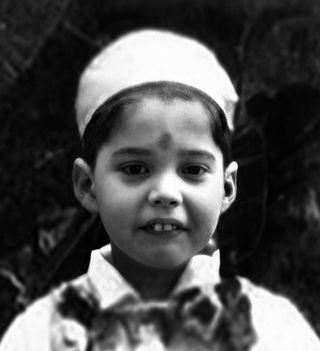
Freddie would not set foot in England until he was 17. His background was almost wholly Indian. His early childhood on Zanzibar (the island is known as the Isle of Spices) sounds idyllic. For 10 years he was educated near Bombay at St Peterʼs School. Family pictures show Freddie as an emergent showman, grinning his toothy grin from winnersʼ podiums on sports days (his sister has kept some of his trophies, including an unlikely one for boxing), one of which has an older Freddie looking like a youthful Gatsby in sunglasses, linen slacks and two-tone shoes.
Thereʼs also a rare shot of his first band, the Hectics, who performed rockʼnʼroll standards by Buddy Holly, Bill Haley and the like, with Freddie on piano and sometimes vocals too. School wasnʼt entirely the colonial idyll, though. In 1984, he remembered: “All the things they say about them [boarding schools] are more or less true. All the bullying and everything else. Iʼve had the odd schoolmaster chasing me. It didnʼt shock me, because somehow boarding schools… youʼre not confronted by it, you are just slowly aware of it. Itʼs going through life.”
So was Freddie the pretty boy who everyone wanted to lay? “Funnily enough, yes. Anybody goes through that. I was considered the arch poof. Letʼs put it this way: there were times when I was young and green. Itʼs a thing schoolboys go through. Iʼve had my share of schoolboy pranks. Iʼm not going to elaborate further.”
In Zanzibar in 1964, there was an uprising against British rule, and the Bulsaras were faced with a choice: they, in common with the Sultanateʼs other Indian residents, were given six months to settle elsewhere. Freddie, Jer Bulsara remembers, was keen on England. The family travelled from the Isle of Spices in the Indian Ocean, and fetched up in sunny Feltham, West Middlesex, right under the Heathrow flight path. They bought a small terraced house in which Bomi and Jer would live for the rest of Freddieʼs life. Freddie was 17 when he arrived in England, yet he seemed to have little difficulty in settling in. If there was any kind of culture shock, it was a retrospective one.
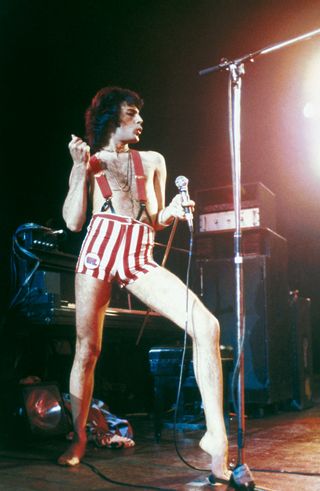
“Well, I kind of grew up in India,” he said. “I saw a lot of poverty over there, but itʼs sort of… You can only sort of reflect poverty when youʼre here, if you know what I mean. If youʼre there, itʼs a norm, it really is. You expect beggars in the street and all that. To people living there, or if youʼre brought up there, you actually believe thatʼs the way of life. So I think when I was a young baby I was just, you know. I was in an English boarding school, and itʼs like, I had boundaries where I couldnʼt go, and I looked upon that and I just thought that was the way India is.”
Freddieʼs hero was Jimi Hendrix . It was hard to see much of him in Zanzibar or Bombay, but in London he could – and did – watch Hendrix play on nine consecutive nights. He could also shop at Biba, buy hippy gear at Kensington Market, and be on hand for the counter-cultural revolution.
He went to Ealing College of Art in 1966 - a hip joint whose alumni included Pete Townshend of The Who , and Ron Wood, guitarist with the Faces and later the Rolling Stones - and graduated with a Diploma in Graphic Art and Design in 1969. He lived in a rented flat in Kensington, and started a market stall with his new friend, Roger Taylor.
“We were selling artwork from some of the students at Ealing,”Taylor recalled. “Then we sold Fredʼs thesis, which was all based on Hendrix. Things like that are probably worth a lot of money now.”
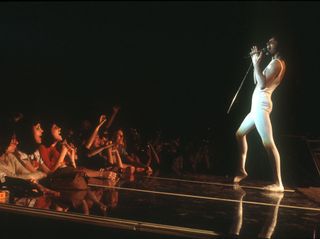
Freddie had met Roger through a mutual friend, Tim Staffell. Staffell and Taylor had a band, Smile, with Brian May . Freddie liked Smile, and he was impressed by Mayʼs major claim to fame: his previous band, 1984, had supported Jimi Hendrix at a gig at Londonʼs Imperial College.
“Iʼd put a lot of work into playing guitar,” May remembered, “and was thinking I was pretty damn good. But Hendrix came along and destroyed everyone. I was deeply jealous, that was the first emotion I felt. Astronomy was going to be my career. Thatʼs what my parents were hoping I would do, really. They wanted me to do a proper job, as we call it in England, and not loon around playing guitars and making a noise.
"So I did my studies, finished school, got my O Levels, got my A levels. I went to Imperial College, did three years and got a BSc Honours in physics, which had a fair bit of astronomy in it, and then I did four years post-graduate for the PhD in astronomy, but I never finished writing the thing up. I published a couple of papers with my supervisor, but thatʼs where I left it. And I donʼt regret leaving it. It was the right time.”
Freddie made an impression on May, too, even though he wasnʼt quite sure why: “Even back then Freddie knew he would be a star. He had no money in his pocket, no success to speak of yet, or even any hope of success, but it didnʼt stop him. He acts the way he does because thatʼs the way he really is.”
Smile somehow evolved into Queen, with May and Taylor joining Freddie, who had by now adopted the rising star in his birth sign, Mercury, as his stage name. John Deacon got the gig after one of the bandʼs girlfriends became friendly with his. By 1970 Queen were gigging, and in 1971 they supported Yes at Imperial College (admission: 50p).
They were no overnight success; Queen I would not emerge for another three years. Freddie: “The moment we made a demo we were aware of the sharks. We had such amazing offers from people saying: Weʼll make you the next T.Rexʼ. But we were careful not to jump straight in. We went to about every company before we finally settled. We didnʼt want to be treated like an ordinary band.
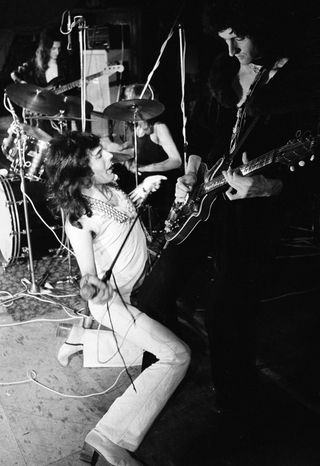
The character of Queen was beginning to emerge. Mercury gave free reign to his natural flamboyance, sucking in a myriad of influences: Hendrix, of course, but also Bowie and glam rock, the thrilling blues power of Led Zeppelin , and the arch art-school madness of proggies like Yes and ELP. As the band defined themselves musically, its character was set, too.
“Everyone,” according to Freddie at the time, “is very highly strung.” The singer even more so. “Iʼm very emotional,” he said. “Whereas before, I was given time to make my decisions, now nearly all of us are so highly strung we just snap. We always argue, but I think itʼs a healthy sign, because we get to the root of the matter and squeeze the best out. But lately so much is happening, itʼs escalating so fast that everybody wants to know almost instantly, and I certainly get very temperamental.”
Queen I , released on July 13, 1973, sold reasonably in America, and the single, Keep Yourself Alive , was championed by the Old Grey Whistle Test . For some reason or another, Queen were hugely popular in Taunton.
The truly iconic Queen did not begin until Queen II and even then the band found themselves visually before they did musically. Theyʼd begun working with the photographer Mick Rock, noted for his pictures of David Bowie and, earlier, Pink Floyd ʼs Syd Barrett.
The plan for Queen II was for the record to have a ‘black’ side and a ‘white’ side. For the black side, Rock modelled his session on some startling pictures of Marlene Dietrich taken for the 1932 movie Shanghai Express . The four heads, tightly together and harshly uplit against a black backdrop, were powerful and beautiful, too, and not only made the cover of Queen II but also formed the basis for Queenʼs most famous image of all, the singing heads used in the operatic mid-section of the video for Bohemian Rhapsody two years later.
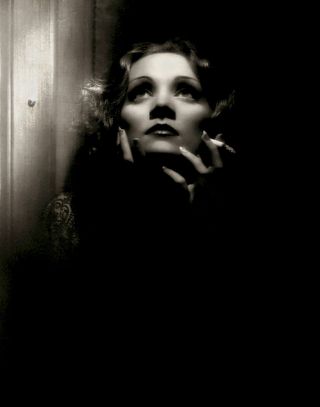
Queen II , released in the Spring of 1974, gave birth to the bandʼs first hit, a more fully realised version of Seven Seas Of Rhye from the first album, and laid the ground for Killer Queen , Now Iʼm Here and the other cornerstone tracks of Sheer Heart Attack , Queenʼs third album, released later the same year.
In an era of heightened creative excitement in which benchmark albums were appearing with amazing regularity, Queen were almost trying too hard. They threw everything from pomp rock to proto-punk and glam pop at the records to see what stuck. It wasnʼt until they recorded A Night At The Opera , in 1975, with producer Roy Thomas Baker that they worked out what was bothering them: they didnʼt fit in at all, and there was no point in trying.
In addition, a change in management to the heavyweight John Reid, who was them busy making his name assisting Elton John , at last gave them representation that: a) wouldnʼt be financially detrimental, and b) intuitively understood the inherent glories of the band.
On the eve of the release of A Night At The Opera , Mercury was wholly aware of what the band had created and of how important it was. As they travelled to the first public playback of it, he declared: “Iʼll never forget this album, dear, never. Weʼve got to have this playback, just to let friends hear what weʼve been up to. The thing is, theyʼll never understand it with one listen. Later on, weʼll all go out, get pissed and forget about the damned album.
“Itʼs taken us about four months, and now weʼve really gone over the deadline with the tour approaching. Itʼs more important to get the album the way we want it, especially after weʼve spent so long on it. The last bits, piecing it together, were more important than any of the rest of it. Itʼs the most important album yet. To be honest, in a way the best judge we had was tonight when we listened back to it, because we just hadnʼt got the time to listen back to it before.
“I think weʼve got the strongest songs ever,” he continued in a breathless rush. “Itʼs going to be our best album, it really is. If I thought there was something wrong with it I would say so, but there are certain things on the album which weʼve wanted to do for a long time. Iʼm really pleased about the operatic thing. I really wanted to be outrageous with the vocals, because weʼre always getting compared with other people, which is very stupid. If you really listen to the operatic bit there are no comparisons, which is what we want.”
The ‘operatic bitʼ, of course, needs no introduction. Roy Thomas Baker first heard Bohemian Rhapsody when Freddie played it for him on the piano. “It was incomplete, but he knew how he wanted it,” Baker remembers. “He stopped and said: Now this is where the operatic section comes in…ʼ”
Baker would grow used to Freddie flouncing in during the sessions saying: “Iʼve just added a few more ‘Gallileos’, dear…” The 24-track tape was passed through the machines so many times that it was said to be semi-transparent by the time Bohemian Rhapsody was finished. Mercury was aware of the songʼs excess, and he revelled in it.
“We donʼt want to be outrageous. Itʼs in us. There are so many things we want to do which we canʼt do all at the same time. Itʼs impossible. At the moment weʼve made an album which, letʼs face it, is too much to take for most people. But it was what we wanted to do. We could have done a few things that are on A Night At The Opera on the first album, but it would have been too much to take for certain people. Really.
“It just so happens that you canʼt cram everything on one album. Itʼs a progression. After the third album, we thought: Now weʼve established ourselves, and we can do certain thingsʼ. Like, vocally, we can outdo any band. We just thought that we would go out, not restrict ourselves with any barriers, and just do exactly what we want to do. It just so happened that I had this operatic thing and I thought: Why donʼt we do it?ʼ
“We went a bit overboard on every album, actually. But thatʼs the way Queen is. In certain areas we always feel that we want to go overboard. Itʼs what keeps us going, really. If we were to come up with an album and people said: Itʼs just like Sheer Heart Attack but there are a few bits on Sheer Heart Attack that are better,ʼ Iʼd give up. I really would. Wouldnʼt you?”
John Reid was insistent that Bohemian Rhapsody be the first single from A Night At The Opera , even though it was obviously too mad and too long, especially for radio stations used to three-and-a-half-minute singles. Nonetheless, Kenny Everett played it 14 times in two days on Capital Radio, and then Top Of The Pops screened the video – at the time an outlandish concept in itself – and the song became a phenomenon. Freddie - his vision, his voice and his teeth now firmly imprinted on the public consciousness - was a star.
“We didnʼt make any money until after the fourth album,” Freddie said later. “Most of our income was consumed by litigation and things like that. We had to use a lot of money, so-called money that we made, to get out of contracts. But it was the best thing we could do. After that it was like a new lease of life.”
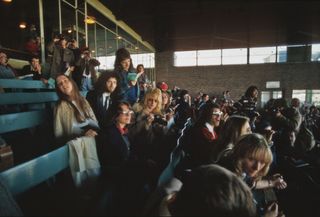
A Day At The Races and News Of The World , which followed – replete with Freddieʼs camp masterpieces We Will Rock You and We Are The Champions – now look like inevitably brilliant and successful follow-ups to A Night At The Opera , but we should remember that Queen marched – or in Freddieʼs case, minced – right through punk rock, although superficially theyʼd become exactly the sort of band that punk sought to destroy. And yet such was the bandʼs joy in their own excesses, such was the force of their momentum, they breezed through.
With their inherent humour, they defused punk as easily as Freddie put Sex Pistol Sid Vicious on the back foot when they were introduced. “Still bringing ballet to the masses, Freddie,” Sid sneered. “Aah, Mr Ferocious,” Freddie mewed with sardonic pleasure, “how lovely to meet you…”
Queen had inadvertently done the Pistols a big favour, too. It was after they withdrew at the last minute from a slot on Bill Grundyʼs Today show that the Sex Pistols took their place and swore their way into infamy. After News Of The World , Mercury was aware of the changing status of the band. It wasnʼt just about making records and touring any more.
“Itʼs time for some stock-taking,” he said. “Weʼve all become businessmen, even though itʼs against our better judgement. Itʼs something that always happens if you get successful. Being a musician is not just cutting discs, unfortunately. I wish it was. Weʼve all got companies now, some connected to music, others not. Iʼm producing Peter Straker, I have my car company… and lots of other fingers in other pies. We must take some time off to get things in perspective or things will start to go wrong.
“Iʼm a very highly strung person. I like having fun, and my job is a very good release for me, but itʼs still my job and I always take it very seriously. And when you are highly strung and you take your work seriously, youʼre bound to appear difficult to the outside world.”
By the start of the 80s, Queen were entering their wilderness years. What punk was unable to do to them, success and excess achieved more easily. Albums of the era like Jazz , The Game and Flash Gordon had all of the musical hallmarks, but precious little of the intensity and fun of their early recordings. Exacerbated by a dreadful relationship with the press (Mercury was rarely interviewed after the NME ran a piece on him with the headline Is This Man A Prat?), singer and band became distant. Mercury in particular came over all Norma Desmond. Speaking to journalist and writer David Wigg in a series of interviews in 1984, he spoke out about the effects of his public image.
“I have to fight that, because if youʼre talking in terms of trying to get a relationship together, Iʼm the nicest person you could meet, my dear. But itʼs just that Iʼm handicapped and I have to fight my so-called stage persona. Most of the time it works against me. The funny thing is, I created the monster. You try to segregate the two and itʼs not easy; itʼs like two sides of a coin. I think over the years I have become bitter, because Iʼve learned more and itʼs made me strong. I have become bitter, and I just donʼt sort of trust anybody, because theyʼve let me down so many times, and because the more youʼve been let down the more you hurt. I feel Iʼm walking around with scars all over the place, and I just think I couldnʼt take another scar.
“You could be the most lonely person. You can be loved by so many thousands of people, yet you could be so lonely. And that makes it worse, because most people just think: How can someone like Freddie Mercury be lonely? He has the money, he has the cars, chauffeurs, the lot.ʼ In fact, sometimes that kind of loneliness is the hardest to bear. You have to put on a persona, and I find it very hard to open up to people because I donʼt trust the buggers.
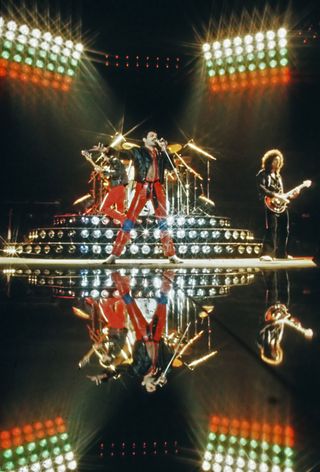
“Iʼm disillusioned, but I think Iʼve got a grip of myself. I seem to be more aware, so itʼs a contradiction in terms, maybe, but itʼs true. Sometimes I wish I didnʼt talk so much to people.
“I feel that I am the manipulator, I can govern this. Itʼs like rockʼnʼroll is the drug, but you govern the drug and itʼs one of those things. I would like to think that Iʼm in the very convenient position of ruling that thing. Otherwise it would be my downfall, and it would have happened a long time ago. Thank God Iʼve got the intelligence to realise that you can only go so far. I would hate to think that anything like that could ruin me. I donʼt need outside stimulus. I donʼt need to, because I feel that I have enough fantasy going on around me and within me.
"If I want a little buzz, itʼs like alcohol, thatʼs fun. I donʼt need outside stimulants to take over my body so I donʼt know what Iʼm doing. Itʼs inbred in me. I would hate to lose control in that way. My persona on stage, they think I carry on that way offstage. But if I had I would have been dead a long time ago. But Iʼm flamboyant, I like to do things fast. Thatʼs my nature.”
“It has changed me, but itʼs sort of gone in two stages. I would be a fool to actually decline the fact that it didnʼt change me in terms of being snobbish and arrogant. That was a stage – the first stage, of course. I was the bees knees and I just thought I was it. But then Iʼd actually come to realise that success could be handled in a different way, and when it comes down to it I actually pay more attention to making people realise that Iʼm normal. Itʼs such a shit thing that people think: Oh, Freddie Mercury. He wonʼt talk to me.ʼ
“I think Iʼve kept it in balance. Itʼs in two stages. Success did change me, and now itʼs actually changed me yet again. Now Iʼm coming down I seem to cope with it quite well. I mean, you canʼt win, darling. You just canʼt win in my situation, and thatʼs just the way it is. The bit of happiness I can create is with my money. Sometimes when I buy people presents, I love it far more than they do. I love to see that kind of thing.
“I think Iʼm sort of a chameleon. I change and I have moods, and I think itʼs a combination of a lot of characters that make up a person anyway. I think over and above Iʼm a person of extremes. I can be very soft, but that makes me that much more tenacious.
“Iʼm not perfect by any means, but I live in a fair way. Iʼm sometimes too lenient, thatʼs my problem. Iʼm a very possessive person, but then you see, I want to have my cake and eat it too. Once I find someoneʼs betrayed me, I go the other way, because once Iʼm betrayed Iʼm an ogre.
“Of course, Iʼve cried rivers. Iʼm very hard on the exterior and very soft-centred. Absolutely. Like a chocolate, something out of Black Magic.”
Mercury admitted, too, that the band were on the slide: “We were all forming a sort of a rut. I wanted to get out of this last 10 years of what we were doing. It was so routine. It was like, go to the studio, do an album, go out on the road, go round the world and flog it to death, and by the time you came back it was time to do another album. After a while itʼs like a painter… you know, you paint away, and then you stand back and look at it in perspective. Thatʼs exactly what we needed. We just needed to be away from each other, otherwise you just keep going in that routine and you donʼt even know if youʼre going down.”
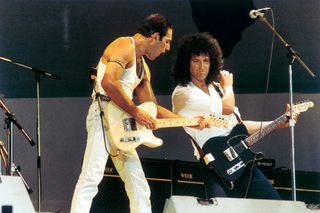
The 17 minutes on stage at Wembley Stadium in July 1985 transformed Queen, and remade them into a wonderfully camp, sleek and ubiquitous rock band, and the biggest British live act of the 80s. A renaissance of sorts had begun with The Works , in 1984, and the videos for Radio Ga-Ga and I Want To Break Free , but it was their performance at Live Aid, where they were the only band cute enough to work out how to play all of their hits in miniature, that bought them back big-time. They hadnʼt appeared on the Band Aid single, and they had incurred the wrath of Steve Van Zandt after they played in Sun City in apartheid-era South Africa.
“I would have loved to have been on the Band Aid record, but I only heard about it when I was in Germany,” Mercury said later. “I donʼt know if they would have had me on the record anyway, because Iʼm a bit old. Iʼm just an old slag who gets up every morning, scratches his head and wonders what he wants to fuck.”
Before the Live Aid event, Freddie was clearer on his motivation for the show: “Iʼm not doing it out of guilt. Even if I didnʼt do it, the poverty would still be there. Itʼs something that will always be there, to be honest, when you think about it. All we can do to help is wonderful things. Iʼm doing it out of pride, pride that Iʼve been asked as well as that I can actually do something like that. And so basically Iʼm doing it out of feeling that one way all the hard work that Iʼve actually done over the years has paid off, because theyʼre actually asking me to do something to be proud of.
"Iʼm actually in with all the biggies and I can do something worthwhile. To actually sing something thatʼs an integral part of whatʼs going on, you know, and the song [ We Are The Champions ] seems to convey that anyway, without us thinking about it. Thatʼs whatʼs magical, and I think thatʼs going to probably bring tears to my eyes, I tell you, when I do it.”
Legend has it that Bob Geldofʼs invitationʼ to Queen to play at Live Aid ran along the lines of: “Tell the old faggot itʼs going to be the biggest thing ever…” Freddie, naturally, found that irresistible.
“I think Bob Geldof has done a wonderful thing, because he actually sparked it off. Iʼm sure we all had it in us to do that, but it took someone like him to actually drive. And it is like a driving force, to get us all to come together. Weʼre going to do bits of Bohemian Rhapsody [but] basically, youʼre not trying to put across your new material or anything like that, youʼre playing songs that people identify with, and just make it a happy occasion. Itʼs not a promotional thing, itʼs a thing where you just have sit back and think what you can do.”
It was Geldof who best summed up the mood of the event and Queenʼs impact on it. “Queen were absolutely the best band of the day,” he remembered. “They played the best, had the best sound, used their time to the full. They understood the idea exactly, that it was a global jukebox. They just went and smashed one hit after another. It was the perfect stage for Freddie: the whole world. And he could ponce about on stage doing We Are The Champions . How perfect could it get?”
Freddieʼs long-term lover, Jim Hutton, had never been to a gig before Live Aid. In his memoir Freddie And Me he described the aftermath of Queenʼs all-conquering performance on that historic day at Wembley Stadium: “When he came off, he rushed to his trailer and I tottered behind like a puppy. His first words were: Thank God thatʼs over!ʼ Joe ripped his wet clothes from him and dressed him. Adrenalin still overflowing, Freddie knocked back a large vodka to calm himself. Then his face lit up. As we stepped out of the caravan we met a grinning Elton John. “You bastards…” he said to Freddie.
Mercury was so good that day that the Royal Mail put him on a commemorative stamp. Just visible behind him in the Peter Blake design is Roger Taylor, who, given Freddieʼs more exotic origins, became the first living Englishman ever depicted on a British postage stamp.
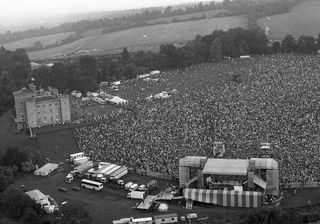
Although he’d seen poverty in India, for most of his adult life Freddie was extremely rich. He was open about the degree to which money drove his career. “How do we keep going, dear?” heʼd say. “Money, of course… I cope very well, actually. I spend. Spend, spend, spend. Well, whatʼs money for? Iʼm not one of those whoʼll get money and stuff it in a mattress and count it every night. I know several people who do a show and rush home to count the pennies. Iʼm not like that.
“Yesterday I went shopping at Cartierʼs. I rang up to see if they could leave it open for me, and they actually did. I went along and felt like Zsa Zsa Gabor. I spent… just put thousandsʼ. I love buying presents for people. Thatʼs a bigger thrill. Thatʼs what Elton does. He goes in there and says: Iʼll have 40 of those.ʼ I think thatʼs the fun. Iʼm just conditioned that way, Iʼll just go out and spend.
“Of course weʼre all in it for the money, and Iʼm not afraid to say that. Also the glory, but weʼve got all that. Most people say theyʼre not in it for the money. I love the money. Itʼs what keeps me going, but after twelve years of a certain respect musically, I donʼt want to just give it up.”
Roger Cooke, Freddieʼs brother-in-law, affirms Mercuryʼs flamboyant generosity: “We had the builders in, and they didnʼt seem to be getting anywhere, and he could tell that Kashmira [Freddieʼs sister] was really fed up. He just said: Have the kitchen on me – replace the lot.ʼ Kash said: Are you sure? Itʼll cost thousands.ʼ And Freddie said: But darling, Iʼve got millions. Have it!ʼ”
Queen rotated around the stadiums of the world after Live Aid. After their jaded years, they enjoyed an Indian summer of a career. Their greatest hits albums sold millions, too.
Mercury reflected at length on both band relations, and the meaning – or lack of one – in his success, in his long interviews with David Wigg.
“I think weʼve just grown so used to each other by now, itʼs just instinct that keeps us going,” he said. “Thereʼs no big bond. We donʼt socialise all that much. Because we were seeing each other so much on tour… seeing [the same] people hanging around would drive you mad. Musically we still respect each other, otherwise… I mean, we have four very different characters. It doesnʼt matter. If musically we donʼt get on then thatʼs when it starts and tempers… I mean, tempers do fly anyway, but itʼs just that if you canʼt stand the other person being in the room musically, then you have to say, well, forget it. I mean, itʼs just torture.
“But then Iʼve nothing else to do,” he said, and then laughed. “I could become a gardener, actually. I suppose I could become a Japanese landscape gardener. Why should I carry on? No, I mean I want to. We really didnʼt think the tour was going to take off in such a way. I mean, after Live Aid we thought Yesʼ, but now itʼs breaking all box office records in certain places. Thatʼs sort of more of an impetus to carry on, to be honest. Why leave now? What the hell am I going to do anyway?”
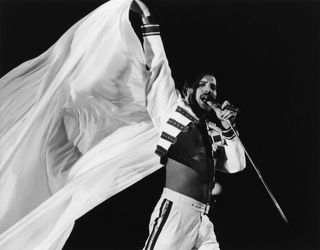
But Mercury seemed deeply ambiguous about the band and its future. The Works album had proved that Queen were a rare quartet, one in which each member had proved to be capable of writing hit tunes. The studio, he admitted, was the source of of some frustration.
“A lot of the time itʼs how each musician is displayed on an album. If I had more songs than somebody else, it would make them a lesser musician. Thatʼs how near the mark it is. Iʼm always trying to make it very diplomatic, so I just say, no matter what it is, we all have even songs from now on. Like in the eighties, I always wrote, Brian and I always wrote far more, but now itʼs come to the stage where they all want to pull their weight… And I think that in this point in time, that is the only way for Queen to survive.
“We canʼt just sort of live as a quartet all the time, so you feel like every time you make a move you feel like a four-headed gorgon or something. We all want to be an individual. Itʼs that break thatʼs very hard to do… Otherwise, itʼs horrible to be just be thought of as one quarter of some entity. But I enjoy it too. It is a kind of a hobby in a funny kind of way… Itʼs something thatʼs so rewarding in the end that you just want to keep doing it and do different aspects of it and see how they turn out.”
Mercury seemed to see the band set-up as a troublesome but needful relationship, where the aggravations of knowing each other so well and for so long were set against his love of, and need for, the drama and the friction in order for him to be at his best. “The challenge is trying to keep the band going when everybody says itʼs going to break up, to be honest. Thatʼs sort of turned round. We were all getting very despondent and we all wanted to do different things. And when you have that in your bloodstream, you just need the slightest excuse to actually break up the band.
“I had sort of made up my mind that after the tour we were going to… not let it out or anything, we were just going to finish the tour and then think about it. But having said that, I was the one that actually changed. Iʼm a man of moods. I suddenly thought that everything was going so well and I sort of… from somewhere or other, I got a sort of new-found force. Suddenly there was more left in Queen. I mean, we really want to stay together.
“When it gets pretty hectic is when we actually do an album, because we do get on each otherʼs nerves. You start thinking: Is it really worth it?ʼ After all these years, you donʼt want it to be such a fight to get anything done. But I think weʼre the four people in the end that need that kind of thing, even if we donʼt like it. If it was too easy, weʼd think: Oh dear.ʼ We have this wonderful space to do nothing, and then we think: Oh my God, weʼd better go back in and carry on fighting.ʼ I suppose thatʼs the way I am.”
Freddieʼs solo career, which began late in his life, did provide him with some fun and some affirmation of an identity outside of the band. Recording the wonderfully mad Barcelona with the diva Montserrat Caballe was a huge thrill for him: “Iʼm smiling from my ass to my elbow, dear,” he said. “Sometimes I sit at home like Iʼve just swallowed the canary, thinking: Ooh, thereʼs a lot of people whoʼd like to be in my shoes right now.” He also had a hit with a cover of the old standard The Great Pretender , a simple song into which he read a deeper metaphor for his life.
“These images that Iʼve portrayed over the years, itʼs a kind of pretence. I wore costumes and put myself in different atmospheres and characters, but underneath that there is a real me. Iʼve been pretending all this time, wearing bananas on my head, wearing glitter and coming along on peopleʼs shoulders. It was all a pretence, whereas underneath it Iʼm still a musician. All the costumes and everything, a lot of people took it so seriously. I didnʼt give a damn. I thought: My god, theyʼve read far too much into it.ʼ”
For so successful and arguably so great a songwriter, Mercury regarded his creative output as disposable, again separating the private and the public man. “I write ʼem, and leave ʼem. If you asked me to play some of my older songs on the piano, I couldnʼt. I forget them. I learned them for the time. I have to go in a day earlier and try to work out all the chords to my own songs. I forget them very quickly. For example, Love Of My Life is adapted on stage for guitar, but it was written on the piano. Iʼve totally forgotten the original, and if you asked me to play that now I couldnʼt.”
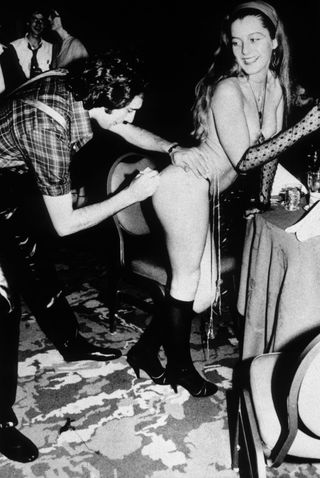
Queen’s ambiguous relationship with the press did have its advantages. The band threw parties to celebrate album releases and band milestones to which they felt free not to invite any members of the ‘fourth estateʼ. The parties grew in legend; they assumed the status of Bacchanals. While the more extreme stories of parties at which dwarves with bowls of cocaine on their heads circulated among the guest were never fully substantiated, those days were (nudge, nudge, wink, wink) wild times.
The party for the release of Jazz , for example, was on Halloween in 1978 in New Orleans, and featured a man who sat nude in a pile of chopped liver, lesbian double acts and transvestites. It was wild fun, but at a cost – a huge cost.
Brian May, speaking remarkably candidly, noted: “Youʼre universally adored and loved. But then youʼre surrounded by people who love you, and yet youʼre utterly lonely. You get to a place which is hard to really recover from, and Iʼm conscious that I never have really recovered. Itʼs like you never grow up. Weʼve all suffered. I know definitely we have. Freddie, obviously, went completely AWOL, which is why he got that terrible disease. He wasnʼt a bad person, but he was utterly out of control for a while. In a way, all of us were out of control and – perhaps I shouldnʼt be speaking for Roger and John, but I think underneath it they would agree with me – it screwed us up.”
May got married while he was young, and thus found himself in a different position to Freddie when the band were at their peak. Freddieʼs sexuality was fairly obviously bound up in his upbringing and background. Camp as a row of tents he may have been, but for six years he lived with Mary Austin, who was to become his dearest friend. May has noted that Freddieʼs song Lily Of The Valley (from Sheer Heart Attack ) was about Freddie looking at his lover “and realising his body needed to be somewhere else”.
Nonetheless, Freddie long continued to take Mary Austin to family functions as his guest. He successfully compartmentalised his life; he played different roles to family, band and friends. This was, of course, his right. But before his final, long relationship with Jim Hutton he was, by his own admission, promiscuous through the late 70s and early 80s. By 1985, he was living alone, although Jim Hutton was soon to move into Freddieʼs Kensington home, Garden Lodge.
“At the moment, Iʼm living totally alone and Iʼm loving it,” Freddie said. “Iʼve sacked about three people that work with me. I was scared of doing that because I thought Iʼd hurt them, and then I thought: No, just do it.ʼ I have nobody staying with me, I have a cleaning lady that comes, and Mary comes and looks after me. It sounds poverty-stricken, doesnʼt it? I love it, I love the space.
“Iʼve stopped going out, whatever, and to be honest Iʼve almost become a nun. I learned the hard way. I thought sex was a very important thing to me because I lived though sex, and now Iʼve gone completely the other way. You see, Iʼm one of those people who can go from black to white; I donʼt like intermediary measures or anything. Itʼs quite easy for me to completely give up. I can give up alcohol at the drop of a hat. And yes, it [HIV/Aids] has frightened me to death and I have stopped having sex.
“I just like titillation now. Iʼm into titillation. What I was doing before… I was very greedy. People always want something more, and sex for me was fun. I was extremely promiscuous, but Iʼve stopped all of that. Practicality came into it. And Iʼm an old bird now, dear. The word ‘solaceʼ came into it, and you canʼt say you have a life of solace and then go round fucking half the world. And I donʼt miss it, I really donʼt.
"It was like a high. Everything was open to me, so in terms of music, sex was a very integral ingredient to what I was doing. It was a very major factor in a lot of what I did, but I would never have thought of sex and nothing else. It was all of these things, and I was living them to the full. There was excess in every direction. I was living what one would call a very full life in every direction. And why not?”
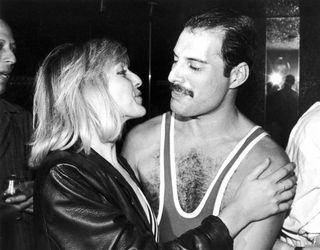
Obviously, the fact that Freddie Mercury was gay was not shock news, but he was deliberately vague publicly about his sexuality for many years. In 1987, he was hurt when a long-standing friend, Peter Prenter, sold a story to The Sun naming some of Mercuryʼs lovers. Two of them had died of AIDS. A follow-up piece named Jim Hutton as Freddieʼs partner, and speculated on a series of other lovers under the heading All The Queenʼs Men.
In 1989 Mercury was reported as have tested negative for the HIV virus. But his luck was not to hold. His withdrawal from public view and his brave and touching appearances in videos for the Innuendoʼ album told their own story.
“I am a bit reclusive actually, yes,” he said presciently in 1985. “But not in a Greta Garbo way. Itʼs not a sort of calculated thing. Iʼd hate to be on a desert island, without anybody. I would loath that. But they have to coax me to go out and volunteer myself into every day sort of way. I really have stopped all that. I do like people around me.
“Maybe itʼs a sort of shy outlook, whereas I can take enormous risks in the music world. Thatʼs an area in which there are no boundaries for me. I will take risks in music, but I wonʼt take risks in terms of social life. I want to go to places Iʼve never been, I want to go to Russia and China and places like that, places I havenʼt been, before itʼs too late. Before I end up in a wheelchair and canʼt do anything. And Iʼll still be wearing my same tights, going: Look…ʼ I can imagine them wheeling me on in a wheelchair, still singing Bohemian Rhapsody .”
From the touching account of Freddie Mercuryʼs last years that Jim Hutton gave in his book Freddie And Me , Mercuryʼs retreat behind the walls of Garden Lodge with a small group of friends and his “old faithful” Mary Austin was at the very least a contented time. Mercury quietly resigned himself to his fate, and lived his last years with dignity.
“Itʼs boring to be 70. I wonʼt be there. Iʼll be dead and gone, dear,” he concluded to David Wigg. “Iʼll be starting a new life somewhere else, dear. I donʼt have any aspirations to live to 70. I donʼt want to sound morbid, but 70 is a long way away, and if Iʼm dead tomorrow I donʼt give a damn. Iʼve lived, I really have. Iʼve done it all. I love the fact that I make people happy. Even if itʼs half an hour of their lives, if I can make them feel lucky or bring a smile to a sour face, that to me is worthwhile.”
Even in death, Freddie did it his way. He confirmed he was suffering from AIDS just two days before he died on November 24, 1991. He was 45. In contrast to the grand gestures of his life, his funeral was small and private, a 20-minute service conducted by two Parsee priests.
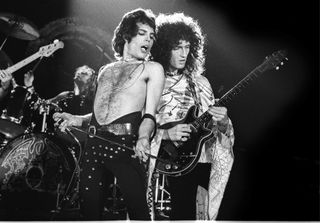
“My music is very safe,” Freddie once said. “Itʼs not political and I donʼt want it to be political in any way. To me, it really is fodder. Itʼs escapism, and I want them to enjoy the music for the period of time that they want. And when they donʼt like it, just discard it in the dustbin. Iʼm not going to be an Eva Peron; I donʼt want to go down in history worried about: My god, I hope they realise that, after Iʼm dead, that I created something or I was something.ʼ Iʼve been having fun, and I want to go on having fun.”
It was never just rock ‘n’ roll for Freddie Mercury. The king is dead. Long live Queen…

Jon Hotten is an English author and journalist. He is best known for the books Muscle: A Writer's Trip Through a Sport with No Boundaries and The Years of the Locust . In June 2015 he published a novel, My Life And The Beautiful Music (Cape), based on his time in LA in the late 80s reporting on the heavy metal scene. He was a contributor to Kerrang! magazine from 1987–92 and currently contributes to Classic Rock . Hotten is the author of the popular cricket blog, The Old Batsman , and since February 2013 is a frequent contributor to The Cordon cricket blog at Cricinfo. His most recent book, Bat, Ball & Field , was published in 2022.
“To promote an album and play some football, it’s the ultimate for me”: The bizarre story of the time Iron Maiden became a football team
"I get hugs from young people that come to our shows and they’re trying to come out to their parents or they’re afraid to." Halestorm's Lzzy Hale on the joy that coming out as bisexual has brought her
Nightwish’s Tuomas Holopainen says upcoming single Perfume Of The Timeless is “eight-and-a-half minutes long”: “The chorus comes in at 3:30”
Most Popular

- Latest News
Fresh Evidence: Revisiting Rory Gallagher’s Sublime 80s Albums
‘duck rock’: malcolm mclaren’s fascinating 1983 album, ‘you’re gonna get it’ how tom petty blossomed as a songwriter, mon laferte’s best songs: tracks of love and courage, ‘disintegration’: how the cure perfected the art of falling apart, ‘(i just) died in your arms’: cutting crew cut through, when ‘carol’ stole everybody’s heart away, ‘stax: soulsville u.s.a.’ to premiere on hbo, billy idol performs ‘rebel yell’ on nbc’s ‘today’, gracie abrams returns with new single ‘risk’, julius rodriguez announces new album ‘evergreen’, the john lennon estate teams with lumenate for ‘meditation mixes’ of ‘mind games’, pearl jam and zane lowe talk new record ‘dark matter’, ghost’s feature film ‘rite here rite now’ will premiere this june, made in heaven: how freddie mercury became a rock icon.
Overcoming his loneliness as a child, Freddie Mercury grew into a superstar showman and one of the greatest rock icons of all time.
Published on
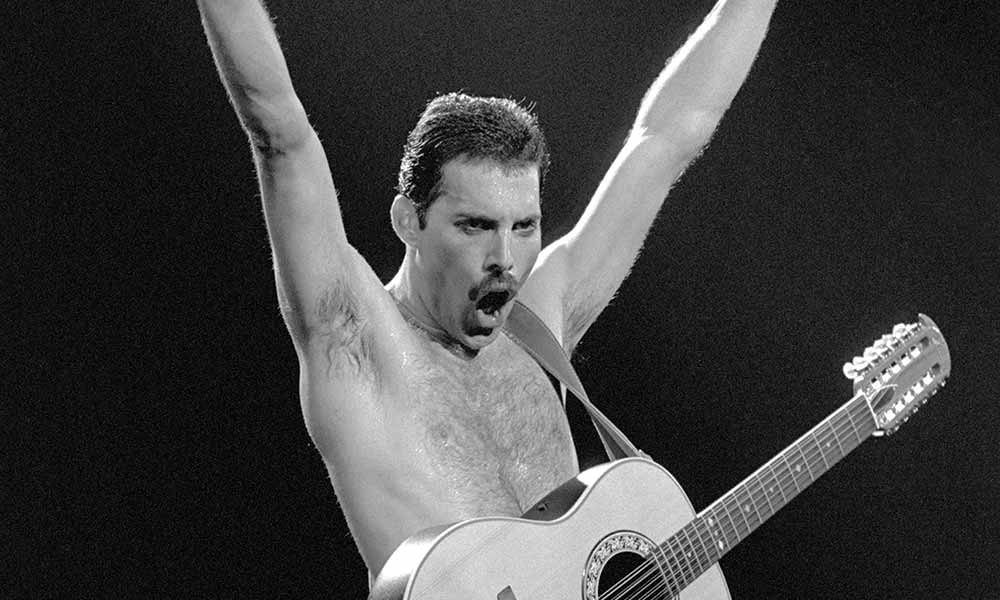
Freddie Mercury lived an extraordinary life in his 45 years. “I really have done it all,” he said. Here, we look at how the singer moved from Zanzibar to the UK and overcame all the odds to become a global icon. Turning rock shows into a theatrical experience, he became arguably the world’s greatest live performer and built a legion of fans who are still passionate about his music several decades after his death.
Listen to the best Freddie Mercury songs on Apple Music and Spotify .
Learning to fend for himself
Freddie Mercury was born Farrokh Bulsara in Stone Town, in the British protectorate of Zanzibar (now part of Tanzania), on September 5, 1946. His first big challenge was to come to terms with being sent away to boarding school, near Bombay in India, when he was still a young boy.
Though he said that being sent away from his parents and beloved sister left him with “feelings of loneliness, feelings of being rejected”, he also said he had the character to make the best of it. “I was put in an environment where I had to fend for myself, so I got a good grasp of how to be responsible at an early age, and I think that’s what’s made me into such a fiend,” Mercury says in the newly released Freddie Mercury: A Life, In His Own Words (Mercury Songs Ltd, available at Amazon in paperback and on Kindle). “One thing boarding school teaches you is how to be independent and not to rely on anybody else.”
Following his interests
After his family moved to the UK in the 60s, Mercury went to Ealing Art School, in London, where he earned a diploma in graphics. At first, he tried to pursue a career in that field and sought to use his education for work. “I got my diploma and then I thought I’d chance it as a freelance artist. I did it for a couple of months but then I thought, My God, I’ve done enough. The interest just wasn’t there,” said Mercury. “And the music thing just grew and grew. I realized music was the biggest thing in my life and I decided to try and make my living from it. It’s as simple as that. I’m one of those people who believes in doing things that interest you.”
Coping with the obstacle race of the music business
After spending time in some small bands, including Sour Milk Sea and Ibex, Mercury eventually hooked up with students Brian May, Roger Taylor, and John Deacon – and they decided to form the band Queen . Mercury has always been honest about the difficulties that faced them – in common with all young bands in the early 70s – when trying to start out in the music business. He called it an obstacle race.
“The moment we made a demo [in 1971] we were aware of the sharks in the business… once you are successful, all the baddies move in and that is when you’ve got to be really strong and try and sift them out – and that is a test of survival, really. You can’t afford to let anyone get away with anything. It’s like playing dodgems; it’s rock’n’roll dodgems.” Mercury later turned some of these experiences into the song “Death On Two Legs.”
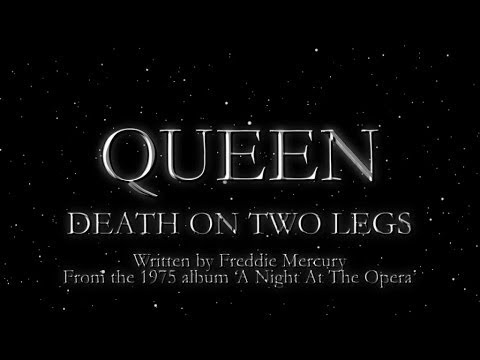
Overcoming the traumatic experience of being a support act
One of the key experiences near the start of Queen’s career was their American tour in 1973, when they were the warmup band for Mott The Hoople . “Being the support act was one of the most traumatic experiences of my life,” said Mercury. “When you support another artist on tour, there are so many restrictions. You don’t get your own light show, your playing time, your effects. There’s no way you can show the public what you can do, unless you headline, and then you know the people have come to see you. The first time we went to America was as support to Mott The Hoople, and it acted as a ‘breaking the ice’ tour. We got a taste of America and so we knew what would be needed the next time we went.”
Pushing musical boundaries
Mercury admitted he was “a forceful character” and said he always had the feeling that “everything’s got to be new.” He said this spirit played a part in helping make Queen such a bold band in the 70s, as they pushed the limits on six albums, including 1975’s A Night At The Opera , which featured the rock masterpiece “Bohemian Rhapsody” . “We went a bit overboard on every album, actually, but that’s the way Queen is,” said Mercury. “It’s what keeps us fresh. A Night At The Opera featured every sound, from a tuba to a comb. Nothing was out of bounds. As soon as we made it, we knew there were no longer any limits on what we could do.”
Mastering world tours
When Queen played Bedford College in January 1972, there were reportedly only six people in the audience. Within 13 years they would be playing a single gig to more than 250,000 fans in Rio De Janeiro, by which time they had become the undisputed masters of stadium rock. Mercury believed that after a slow build across 1973 (they started the year playing the university circuit and ended it with sell-out gigs at the Hammersmith Odeon), the turning point was a global tour in 1974 that included Australia and the United States. “The successful worldwide tour, which we’d never done before, taught us a lot,” said Mercury. “It taught us how to behave on stage and come to grips with the music.” He said that by the time they went to Japan in 1975, “We were a different band… our playing ability was better. We also tend to work well under pressure.”
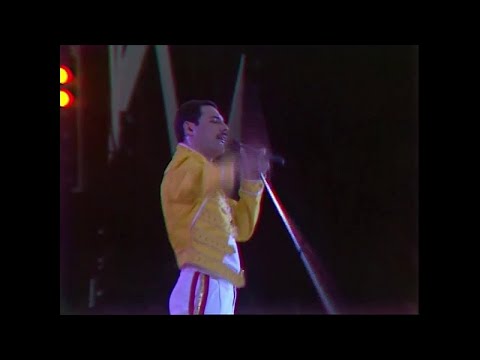
Coping with overzealous fans
Mercury interacted with his fans and loved the adulation he received on stage. There were only a couple of unfortunate incidents that stuck out. In Seattle, in 1975, a young fan got into his hotel room and “pilfered my jewels and bracelets.” He confronted the thief and wrestled the jewels from her. “Then, a year later, my very promising pop career nearly came to an untimely end when two young girls outside the theatre decided to claim my scarf as a souvenir,” added Mercury. “They quite forgot it was wrapped around my neck at the time, and nearly strangled me.”
Becoming a superstar showman
“I’d like the whole world to listen to my music and I’d like everybody to listen to me and look at me when I’m playing on stage,” Mercury said in the 70s. He always wanted to make his audience walk away from a Queen concert “feeling fully entertained.” “I have to make sure that I win them over and make them feel that they’ve had a good time… I know it’s a cliché to say, ‘Oh, you have them eating out of the palm of your hand,’ but I just feel that the quicker I do that, the better, because it’s all to do with me feeling in control. Then I know that it’s all going well.”
He brought all this to bear at Live Aid , at Wembley Stadium in July 1985, when he had 72,000 fans in London, and an estimated 1.9 billion people watching on television from 130 countries around the world, eating out of the palm of his hand with a stunning 21-minute performance .
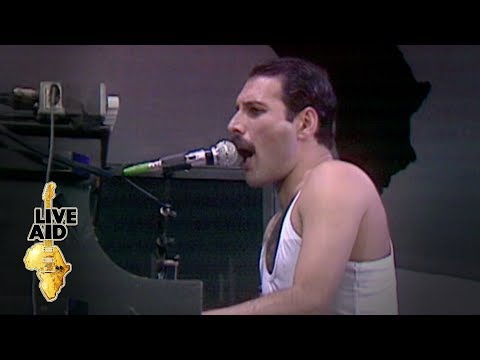
Going solo and taking ballet to the masses
“I had a lot of ideas bursting to get out and there were a lot of musical territories I wanted to explore which I really couldn’t do within Queen,” said Mercury, talking about his 1985 solo album, Mr. Bad Guy . The album gave him the chance, he said, to be his “own boss.” “I find that when I’m my own boss completely, it’s easier for me. I make all the decisions.” One ambition the solo album enabled him to fulfill was showcasing his love for ballet, putting it into the videos he made to promote Mr Bad Guy . Arlene Phillips, who was the choreographer for his 1985 video “I Was Born To Love You,” said Mercury wanted “to take ballet to the masses.”
Never being afraid to take risks
One of the words that cropped up time and again in Mercury’s interviews was “risk.” “A risk element is always involved, and that’s the way I like it,” said Mercury. “That’s what makes good music. Queen have always taken risks.” Mercury described the song “Bohemian Rhapsody” as “a risk” – the same term he used for the “I Want To Break Free” video – and called Queen’s experimental 1982 album, Hot Space , “a big risk.”
Mercury took another big risk in 1988 when he began working with the world-famous operatic soprano Montserrat Caballé, collaborating on the album Barcelona . “I knew I was taking a big chance doing something like that,” said Mercury, who was so proud of his successful combination of rock and opera. “I didn’t think I was capable of writing operatic pieces that would suit a world-renowned prima donna,” he said. “I really didn’t know I was capable of things such as that. I thought, What else is there left for me to do? I mean, I defy any other rock’n’roll personality living today to duet with a legendary opera diva and survive!”
Freddie Mercury was always a man who overcame the odds.
The solo-career-spanning Freddie Mercury box set, Never Boring , is out now.
November 12, 2019 at 4:33 am
I have to say Freddie Mercury is the best. Nobody even compares..I wish so much he was still with us..He had so much more to give..
November 16, 2020 at 8:54 am
So true and I feel exactly the same. There are SO many fans still talking about him, asking questions … it makes me wonder if he really knew how loved he was. So much talent and such a good person taken way too soon. And it’s amazing how much of their music is still in everything today! I hear it in movies, commercials, on the radio and everywhere stores play music. It’s timeless. I don’t know about you but it’s still hard to accept Queen playing again and re-recording music that Freddie wrote and recorded and made famous; I know they’re well entitled to do whatever they want and I’m happy for them, but it still kind of hurts because it’s not Freddie and can’t ever be. He was one in a million. Such a treasure!
Julia Edith López López
August 23, 2020 at 8:18 pm
Cada día que descubro intimidades de su pensamiento hacia la mùsica con Freddie Mercury, y a atreverse a salir de los códigos normales de los rockeros e innovar entre un género y otro, o de ambos crear uno solo…! Confieso que este artista talentoso por excelencia, cantante, bailarín, músico, compositor con una vida interna tan intensa, que su cerebro nunca descansó, pues, independiente de lo que Freddie hacía externamente, su mente creaba a todo full las verdaderas obras que nos dejó. Bajo ningùn punto, difiero con los otros integrantes de Queen, porque juntos era éxito seguro. Como solista Freddie tuvo la oportunidad de demostrar de cuánto podía dar de su esencia y naturaleza. Soy una mujer adulta, de 80 abriles, y sigo a Queen, desde 1974 pero mi límite o fecha de vencimiento fue el 24 de noviem,bre de 1991, cuando él falleció. Hasta la fecha el grupo actual QUEEN, todavía no he sabido que ya tienen a la venta algùn disco con el vocalista Adam Lambert, no sé ni quien es el bajista. Gracias por permitirme comentar y les felicito por el informe publicado en relaciòn al gran FREDDIE MERCURY que dejó tanta huella en el mundo. Saludos cordiales a todos y cada uno de ustedes, desde Chile, Coquimbo, IV Regiòn, a 23 de agosto de 2020.
Your email address will not be published. Required fields are marked *
Save my name, email, and website in this browser for the next time I comment.
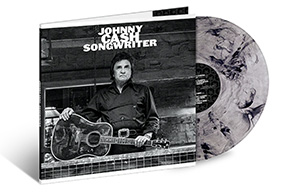
Freddie Mercury Was Part of Brian May and Roger Taylor's Entourage Before Forming Queen
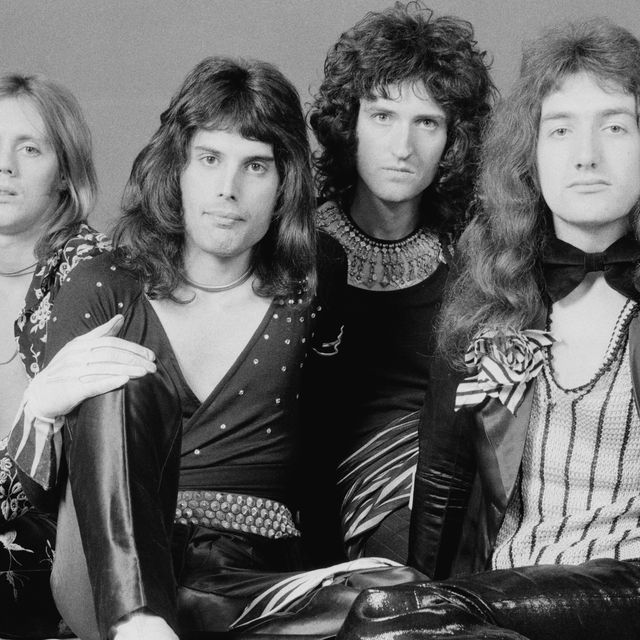
We may earn commission from links on this page, but we only recommend products we back.
Raised in the Feltham, Middlesex, section of London, a teenage May was smart and dedicated enough to build his own guitar, the legendary Red Special, with his father in 1963. The following year, he joined classmate Dave Dilloway to form a band called 1984, adding harmonica player and vocalist Tim Staffell before their first public gig in October.
As detailed in Mercury: An Intimate Biography of Freddie Mercury , 1984 was a cover band that played hits by groups like The Shadows, The Yardbirds and The Rolling Stones, displaying enough craftsmanship to land a gig on the same bill as supernova guitarist Jimi Hendrix in May 1967.
May, who was studying astronomy at London's Imperial College, soon quit the band to ostensibly focus on his schoolwork. But he also yearned for more creative musical expression, and he joined forces with his old bandmate Staffell, now attending the nearby Ealing College of Art, and fellow Ealing student and organist Chris Smith to launch a new group that became known as Smile.
The trio became a quartet when London Hospital Medical College dentistry student Roger Taylor responded to the group's advertisement for a drummer. Formerly the centerpiece of a popular Cornwall band called The Reaction, Taylor impressed the others with his chops and energy, and by the fall of 1968, Smile was professionally up and running.
Mercury sang in other bands before Queen
Meanwhile, Staffell and Smith had become friends with a unique character named Freddie Bulsara. Born Farrokh Bulsara in Zanzibar, Mercury had emigrated with his conservative Parsee family to Feltham, Middlesex, in 1964, before enrolling at Ealing in 1966.
Largely remembered by classmates as shy and quiet, Mercury nonetheless stood out for his exotic looks and budding taste for outlandish fashions. He also possessed a sharp sense of humor and an endearingly campy side, traits that made an immediate impression on May and Taylor upon their first meeting in early 1969.
Before long, Mercury was an established member of the Smile entourage, instructing its members on how to perform and lobbying to become the lead singer while following them around on gigs. He grew especially close to Taylor and moved in with the band after graduating from Ealing in 1969.
That summer, Mercury became the lead singer of a cover band called Ibex. Eventually changing its name to Wreckage, the group struggled to find its footing and disbanded by the end of the year, though not before its frontman stumbled upon what would become his signature move of parading around with the top half of a mic stand.
READ MORE: Meet Mary Austin, the Woman Who Stole Freddie Mercury's Heart
Mercury, May and Taylor launched Queen in 1970
As Wreckage flailed, the fortunes of Smile also waxed and waned. They cut a single for Mercury Records, "Earth/Step on Me," which quickly vanished after its August 1969 U.S. release and a gig at London's Marquee Club that December fell flat.
By early 1970, Smile had been dumped by its label and lead singer Staffell. Mercury was then involved with another group called Sour Milk Sea, but this venture soon petered out as well.
Thus created the opportunity that had been staring everyone in the face for some time, and in April 1970, Mercury, May and Taylor agreed to move forward with their musical aspirations together.
First up was the band's name. It was Mercury, favoring the simplicity of a one-word name, who came up with Queen, which referenced his androgynous nature and regal aspirations for success. He also set about completing his own transformation from shy London immigrant to rock star, with a nod to the Roman mythological messenger of the gods, henceforth becoming known as Freddie Mercury.
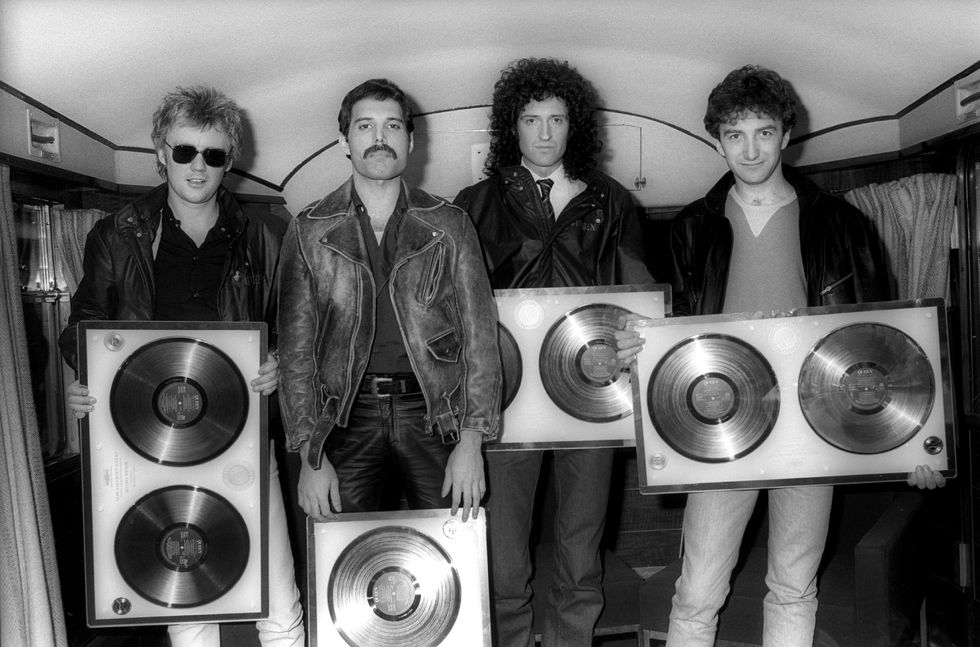
READ MORE: The Complicated Nature of Freddie Mercury's Sexuality
The band found its missing piece in bassist John Deacon
Queen played its first formal gig at a Cornwall Red Cross benefit on June 27, 1970, with Mercury singing and strutting, May on guitar, Taylor on drums and Mike Grose on bass.
This arrangement didn't work, and after a few shows, Barry Mitchell took over on bass. In early 1971, the job was briefly entrusted to Doug Bogie.
The missing link was uncovered after a chance meeting with bassist John Deacon at a London disco in February. An electronics student at Chelsea College, Deacon was a few years younger but a seasoned performer with a Leicestershire band called The Opposition. Quiet and a quick learner, he fit right in with a headstrong group that was stubbornly plowing ahead with its musical dreams.
Indeed, it would take quite a bit of stubbornness for Queen to ride out the two-and-a-half years until their self-titled debut album hit stores, but the pieces were in place, setting the stage for the emergence of one of the most innovative and popular rock bands of the decade and beyond.
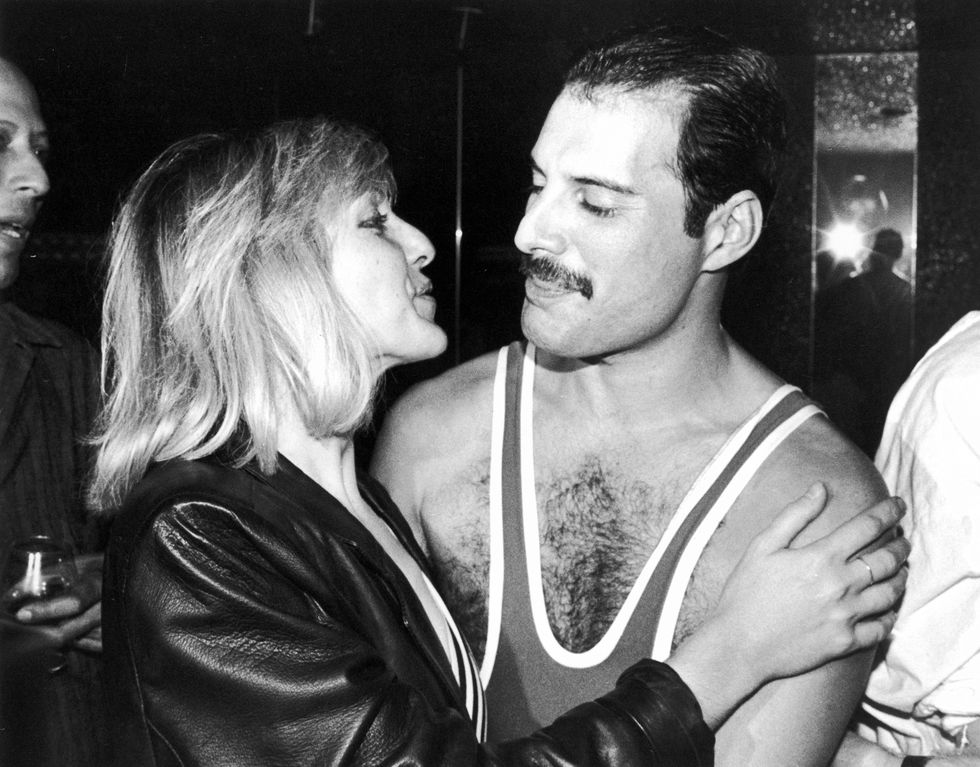
Rock Musicians
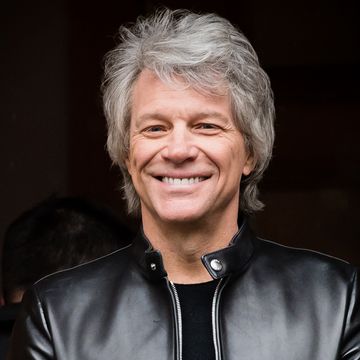
Mick Jagger

No Doubt Surprises Fans With Olivia Rodrigo
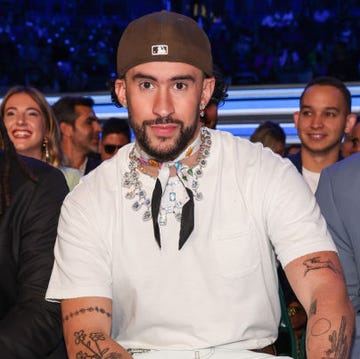
Elvis and Priscilla’s Turbulent Relationship
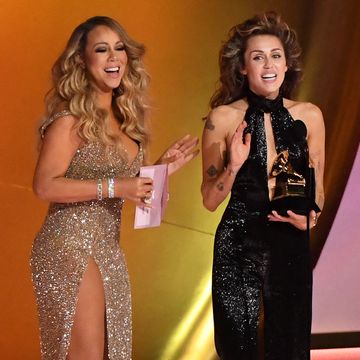
2024 Grammys: The Major Winners and Takeaways
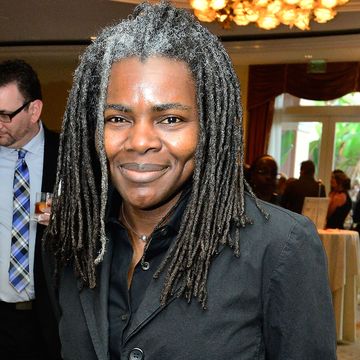
Tracy Chapman
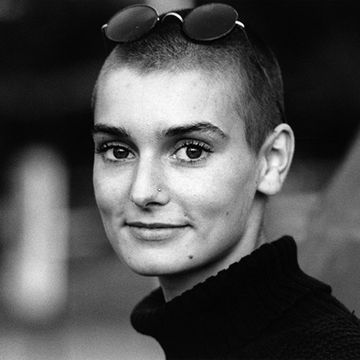
Sinéad O’Connor
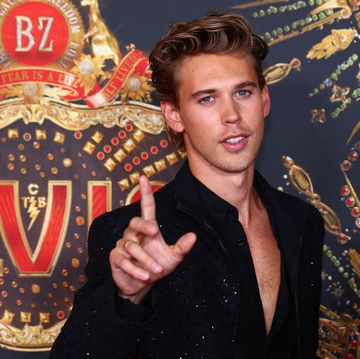
How Austin Butler Landed the Part of Elvis
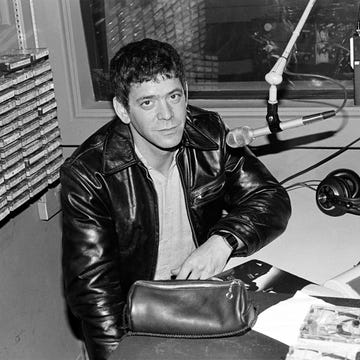
11 Rare Vintage Photos of Lou Reed
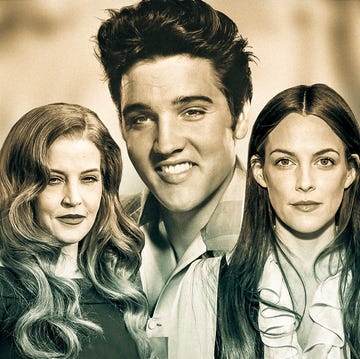
Elvis Presley’s Family Tree
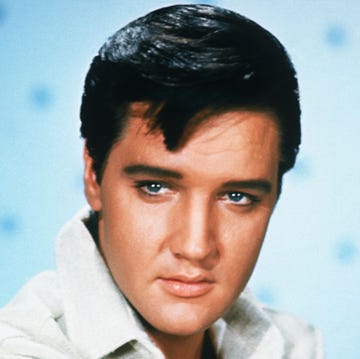
Elvis Presley

Freddie Mercury: A Bohemian Rhapsody
In the pantheon of rock star decadence, there’s one name that shines brighter than all others combined. Freddie Mercury was a man who did everything by extremes. The lead-singer of Queen, he possessed a personality bigger, brasher, and more flamboyant than even the band’s loudest songs. It was Freddie who threw the greatest party this side of Ancient Rome, in New Orleans in 1978. It was Freddie who turned seduction into a high-tempo art form; rushing offstage between songs to bed another beautiful man, before rushing back on again. Yet this showmanship went beyond mere hedonism. It was also Freddie who, in 1985, played a Live Aid set so bombastic, it’s estimated to have got a staggering 40% of the world’s population rocking along with him.
But while his lifestyle remains legendary, there was another side to Mercury. One far more complex than his onstage persona would suggest. Born to Indian Parsi parents, Freddie was a perpetual outsider. Arriving in Britain in 1964, he had to operate in a world in which both his ethnicity and sexuality marked him out as alien. This is the story of how that outsider went on to become perhaps the greatest performer of all time.

Being Faroukh Bulsara
When Faroukh Bulsara was born on September 5, 1946, he couldn’t have seemed more unlike the legendary rockstar he’d one day become. The eldest son of two Parsi Indians – a community of Zoroastrians who’d fled Persia to escape persecution – his family had its roots in the Bombay of the British Empire.
Indeed, the Empire was an outsize influence on the family’s life.
Bulsara’s dad was a civil servant working for the British on the African island of Zanzibar. Thanks to this, the family were able to live a life of comparative luxury. Their home in Zanzibar’s Stone Town came replete with servants and a nanny to look after young Faroukh.
The Empire also influenced the boy’s education.
While his parents were committed Zoroastrians, they sent the boy to Zanzibar’s Missionary school, where he was taught by Anglican nuns. It was at the school that the boy was nicknamed Bucky, on account of his overbite.
Yet this mild physical defect would turn out to be a secret power.
Many years later, when his Faroukh personality had been left far behind, Freddie Mercury would refuse to get his teeth fixed; lest doing so destroy his incredible four octave range. When he turned eight, the boy left Zanzibar, sent to now-independent India to study at an English-style boarding school.
It was during his years there that two important things happened.
The first was that Bulsara discovered he was utterly obsessed with music. Under the watchful eye of his grandparents in nearby Bombay, he formed his first band.
The second was something Bulsara never talked about much, not even when he was famous.
It was at boarding school, aged 14, that he had his first sexual experience with another boy.
Come 1963, Bulsara had graduated and relocated to Zanzibar, just as the island won its independence from Britain. By now, the childhood nickname of Bucky was gone, replaced by the much-less cruel nickname Freddie.
Back on the island, Freddie Bulsara divided his time between finishing his education and swimming in Stone Town’s clear waters. It was a fairly aimless existence, one befitting a teenager who didn’t yet know where he wanted to be or what he wanted to do.
Little could Freddie have known the decision was about to be made for him.
The Zanzibar Revolution exploded in January of 1964. Pitting the African majority against the ruling Arab elite, it killed upwards of 17,000 people.

The Bulsaras fled the violence, using British passports offered to the family when both India and Zanzibar exited the empire.
And that was how Freddie Bulsara at last came to settle in England.
By 1966, he was doing a design course in London, and feeling confident about a career in fashion.
It became commonplace to see Freddie strutting along Portobello Road dressed as a pirate, say, or working a clothing stall in Kensington in full-leather. Even at this early stage, he possessed a white hot streak of self-confidence, telling anyone he met that he was going to be a star.
Even though the bands he was now playing with were milquetoast nothings at best, that confidence still rubbed off on people. When Freddie strutted into the cult fashion store Biba in 1969, his attitude floored sales girl Mary Austin. The two began dating and, within months, were living together in a cramped apartment.
But it would be two other people Bulsara met around this time who’d change his life. One a mopey astrophysicist, the other a lothario studying to be a dentist. Their names were Brian May and Roger Taylor. Along with Freddie, they would soon form the band that would make them all famous.
Becoming Freddie Mercury
Since you’re watching a biography of Freddie Mercury, Rock God , rather than Freddie Mercury, Random Dude Who Did Nothing , you already know how the new band is going to pan out. But it’s worth pointing out just what an unlikely prospect Queen seemed in the early 70s. How divisive people found them.
As one music journalist memorably put it:
“Queen are either the future of rock’n’roll or a bunch of raving pooftahs.”
The thing was, nobody could really tell.
Queen had formed in 1970, the same year Faroukh Bulsara legally changed his name to Freddie Mercury. It was a change that ushered in a new public persona, one more outrageous than ever before.
As Roger Taylor said:
“It was Freddie who instilled in us the belief that we had to make people gasp every time.”
And making people gasp was something Queen excelled at.
Onstage, Freddie was already wearing mascara, codpieces, leotards; already exhibiting his incredible showmanship. For a lot of audiences, it was too much. Queen were slated in the music press, with Freddie himself singled out for harsh treatment.
Yet this criticism never seemed to land.
Instead, Freddie deflected it with winking self-deprecation, like when he declared of Queen: “we have more in common with Liza Minnelli than Led Zeppelin.”
At the same time, the band was slowly finding its footing. In 1971, bassist John Deacon joined, completing the classic Queen lineup. By 1973, the group had released their debut album, imaginatively entitled Queen . Off the back of this, they got a gig playing support for Mott the Hoople’s UK tour.
Despite this being a major step-up, Freddie was outraged he hadn’t been given a tour of his own.
“Being support is one of the most traumatic experiences of my life,” he half-joked in private.
Still, it was hard to complain. By winter, Queen were playing their first foreign tours, and well into writing their second album, the even-more-imaginatively-titled Queen II. Although Trident Records was barely paying him a living wage, Freddie still felt secure enough to propose to Mary Austin. Not long after, the band scored their first top ten hit with Seven Seas of Rhye .
So things were looking good as Queen headed off on their first American tour in April, 1974, again supporting Mott the Hoople.
But, sometimes, looks can be deceiving.
Rather than their big breakthrough, Queen’s America tour became a horrorshow when Brian May contracted hepatitis and the whole thing had to be canceled. As the group returned to Britain on an emergency flight, it’s easy to imagine how despairing that long trip over the Atlantic could’ve been.
But if there was anyone who could overcome despair through sheer force of personality alone, it was Freddie Mercury.
That summer, Queen returned to the recording booth.
For months, Freddie worked them like a demon, possessed by some volcanic drive. Worked to turn the band’s ailing fortunes around.
In this, he succeeded.
Sheer Heart Attack landed like a glitter bomb in November, 1974.
It was the album that introduced the world to the Queen sound: to that bombastic mix of opera, high-camp, and heavy rock.
As Mercury declared:
“We’ve found our identity now. And we have the feeling we can outdo anyone.”
But while Sheer Heart Attack would save the band commercially, it wouldn’t be the album that cemented their place in music history. No, that honor would go to a single Mercury was now just a year away from writing. A song that has been interpreted in as many different ways as the Second Amendment.
Freddie would call that song Bohemian Rhapsody .
And it would be his final breakthrough into superstardom.
All the Young Dudes
The lead-up to Bohemian Rhapsody ’s release was outwardly one of success for Freddie Mercury and Queen. Sheer Heart Attack had turned them into serious players, transformed their earnings from a Dickensian pittance to Scrooge McDuck-style vaults of cash overnight.
Yet, behind the scenes, things were significantly less rosy.
As 1975 wore on, Freddie and Mary Austin’s relationship began to fray.
Although they still nominally lived together, Freddie was spending more and more time away, only retuning late at night – if he returned at all. Austin thought he was having an affair with another woman. And she was half-right. Her fiancee really was having an affair.
Only not with a woman.
David Minns was Mercury’s first, serious boyfriend.
Although their relationship didn’t last, it was a transformative event for the singer. Even while the two were sleeping together, Freddie began experimenting with gay hookups.
It was like a switch had been flipped.
Mercury had never been monogamous, seducing plenty of women even while he and Mary Austin were engaged. But, after Minns, the singer’s tastes shifted. As Brian May later recalled: “It was fairly obvious when the visitors to Freddie’s dressing room started to change from hot chicks to hot men.”
And there were suddenly a lot of hot young men around Freddie Mercury. Beautiful boys, sourced from all over the world.
As a result of this transformation, it’s been suggested by a whole lot of people that Bohemian Rhapsody was written as a secret coming out song. Now, we don’t want to read too much into what may just be a pleasing six minutes of operatic nonsense. But it’s not hard to see how Mercury’s inner life might’ve been reflected in his masterpiece.
Things finally came to a head with Mary Austin in 1976.
With Bohemian Rhapsody and its parent album Night at the Opera by now a smash success, Freddie Mercury sat down with Austin. In quiet, halting tones, he told her that he thought he was bisexual.
According to Austin, she responded by saying:
“No Freddie, I don’t think you are bisexual. I think you are gay.’”
Today, this looks like both Bi-erasure and… well, plain wrong . Although he showed a real preference for dudes, Freddie would have significant, sexual relationships with women well into the 1980s.

But not with Mary Austin anymore.
Austin moved out shortly after, although she and Freddie would remain close friends. Later, Freddie would tell people that she was essentially his wife. Still, Austin’s leaving seems to have been the catalyst for Freddie embracing his sexual identity.
He began appearing in clothing that mimicked gay, bisexual, and BDSM subcultures.
In 1978’s Don’t Stop Me Now , he cheekily sang about making both a “supersonic woman” and “supersonic man” out of you – perhaps a knowing nod to his own preferences. Yet, even as Queen turned up the camp to 11; even as Freddie began dressing in public as a Castro Clone, he never publicly discussed his sexuality.
Asked by a journalist to say once and for all if he was straight, gay, or bi, Freddie simply gave a toothy grin and replied:
“I sleep with men, women, cats, you name it.”
But while his public persona would never make a definitive statement one way or another, his private life would tell its own – often lurid – story.
Glorious Decadence
The late 1970s were years of eye-watering excess. As Queen shows got bigger and more choreographed, so did Freddie’s hedonism. Fun became something created with precision. Drugs were flown specially into cities to be on hand whenever the singer wanted a snort. Gorgeous men were kept in steady supply.
Freddie’s libertine side even appeared during shows, with it becoming standard practice for him to run backstage between songs, be sexually serviced, and then return to belt out the next number.
The outrageous high point of all this probably came on Halloween, 1978.
To celebrate the launch of Jazz , Freddie rented the Fairmont Hotel in New Orleans, and threw an eye-wateringly expensive bash to rival anything in Ancient Rome.
Transgender dwarves were hired to offer guests cocaine specially flown in from Bolivia. Erotic dancers suspended from cages vied for attention with naked waitresses, while gigantic, nude women sprawled elegantly across tables, lit cigarettes glowing in multiple orifices.
Beautiful models of both sexes wrestled in a pool of raw liver. Firebreathers and drag queens competed for space with a man biting the heads off live chickens. In the expensive marble toilets, prostitutes of both sexes offered their services for free. And, of course, everywhere as far as the eye could see were mountains and mountains of drugs.
It was Mercury in a nutshell: operatic, bonkers, brilliant, camp, and not a little perverted.
It was also everything his detractors hated about him.
Already perceived as all style and no substance, Queen’s overwrought excess turned them into critical whipping boys. Freddie was delighted. Whenever critics put the question to him, he retorted:
“All true, darling. We’re the most preposterous band that’s ever lived.”
And then, one assumes, stuck his nose right back in a handy bag of Uncle Escobar’s Finest.
Yet while Queen as a whole earned a reputation for excess, it was really Freddie who was the mad, shooting star – burning through the skies at 200 degrees Fahrenheit.
In 1980, the singer settled in a luxury apartment in New York City.
Almost every night, he’d hit a trendy club, seduce as many people as he could, and funnel them back to his apartment. When he woke up at 4pm the next day, there might be hordes of gorgeous young men who needed to be chased away before the madness could begin afresh.
It was a crazy time, even by rock star levels. Yet, it also seemed to be freeing.
Finally, Mercury was becoming the icon he’d perhaps always dreamed of being. The uninhibited, bisexual music god his young self could’ve hardly dared imagine.
Sadly, this freedom wouldn’t last.
In early September of 1982, Freddie Mercury turned up at a New York doctor’s office, complaining of a weird white spot on his tongue.
Today, we know it was likely an early sign of the HIV infection he’d probably picked up that summer. But, back then, AIDs was only just starting to seep into the public consciousness. In fact, the name “AIDs” was still a couple of weeks away from being coined.
But while that meant no sudden outing in the press, no stigma attached to Mercury’s name, it also meant something else.
No cure.
For the rest of his life, Freddie Mercury’s body would be slowly eaten away by the disease he hadn’t even known existed. The disease he wouldn’t even be officially diagnosed with until 1987.
Tragically, his days were already numbered.
Lows and Highs
If you were to plot Queen’s fortunes across the 1980s, they would resemble one of those jagged share-price graphs with the arrow shooting wildly up and down. On the one hand, the band scored its biggest single yet with Under Pressure , sometimes known to delusional white rappers as Ice Ice Baby .
They also cracked South America, playing what was then Brazil’s biggest-ever rock concert.
On the other hand, their US sales took a battering as Freddie’s queerness became more overt; before falling through the floor when the band appeared in drag for their video to I Want to Break Free .
At the same time, tensions backstage were resulting in fistfights between members, including one at an Italian festival that turned into a full-on brawl.
But perhaps the nadir came in 1984, when Queen played South Africa.
At the time, Nelson Mandela was still in prison, and the world was boycotting the Apartheid regime. Into this, Queen stepped to play eight nights at a whites only entertainment complex. The resulting furore nearly killed their reputation. Queen were handed a massive fine by the musician’s union, and were professionally ostracized.
Yet, this stupid , self-inflicted low would be followed by the band’s – and Freddie’s – greatest high.
In 1985, the band received a call from Bob Geldof, asking them to play a twenty minute set for Live Aid – a concert designed to raise money for famine relief in Ethiopia. Broadcast to 110 countries, with global viewer numbers reaching 1.9 billion, Live Aid was simply the biggest concert in history. Everyone from the Beach Boys, to Sting, to David Bowie was playing.
Yet, it would be Queen that stole the entire show.
Unlike some of the other artists, Freddie knew this was performance on a grandiose scale. Their twenty minutes would be the hits and nothing more.
And Freddie was going to give it his all.
Today, Queen’s Live Aid set is legendary. With a showmanship probably never seen since, Mercury electrified the crowd. His energy, his passion, were practically superhuman.
It’s estimated that, at one point, as much as 40% of the global population tuned in to rock along with him.
As career peaks go, this was a veritable Everest. That same year, Freddie also hit a new high in his personal life. In March, he met Irish hairdresser Jim Hutton at HEAVEN gay club in London. Originally, Hutton was just another conquest. But, after a few weeks of fooling around, Hutton told Freddie he would have to choose between keeping him, or keeping up his lothario ways.
Incredibly, Freddie chose Hutton. The two would be together until the end of Freddie’s life.
In short, Freddie Mercury in 1985 had everything: the respect of the world; a steady, non-volatile relationship; and more money than he could ever realistically spend. But this was sadly just a temporary high.
The very next year, the arrow would come plunging right back down to earth.
By 1986, it was clear that Freddie was seriously ill. His appearance became gaunt, like a starving man. Rumors began to swirl in the British press that he might have AIDs. The following year, two of his friends died from the virus. Not long after, a former manager-turned-boyfriend outed the singer to a British tabloid.
Already feeling hurt and betrayed, Freddie at last bit the bullet. Around Easter, 1987, he went for an HIV test.
You already know what the results were.
At first, Mercury only told Jim Hutton. Retreated to his Kensington home, only rarely venturing out. In 1987, there was only one possible outcome to a positive HIV test: death.
Aged barely 40, Freddie was already living out his final years.
Who Wants to Live Forever?
Freddie Mercury’s final years were almost unbearably sad. From a hedonistic rock god, he became a recluse, only ever venturing out to work in the recording studio.
Still, at least he wasn’t alone.
Jim Hutton remained by his side, becoming almost as much his carer as his lover. Mary Austin, too, was still around. She spent as much time with Freddie as possible in those final years – still the only person the singer felt he could really relate to.
Yet, even as he was dying, Freddie still retained his acid tongue.
Asked if he thought Queen’s music would last, he wryly responded:
“I don’t give a f**k, dear. I won’t be around to worry about it.”
The final end came in November, 1991.

On the 23rd of that month, Mercury at last released a statement, confirming to the world that he had AIDs. Well, maybe it’s unfair to say Freddie released it. According to Jim Hutton, Mercury spent his last days on Earth dosed up to his eyeballs on morphine, drifting in and out of consciousness.
It had been a deliberate decision to keep his diagnosis a secret until it no longer made a difference.
Freddie Mercury died the next day of bronchial pneumonia, aged only 45. Hutton – still playing the role of carer – was changing the star’s clothes as he passed away. As he later said:
“While I was putting his boxers on I knew he’d gone. I went into my bedroom and stopped a carriage clock Freddie had given to me: the time was 12 minutes to 7.”
When the news broke, hundreds of fans turned up outside the home to pay their respects. There was talk of a grand funeral – a final party to send Mercury off into the Heavens. But Freddie Mercury had already died, perhaps months earlier. In those last days, Faroukh Bulsara had been all that remained.
And he wanted a small, traditional Zoroastrian funeral.
Freddie’s body was cremated on November 27, 1991. Along with the bulk of his estate, he left his ashes to Mary Austin, who agreed to scatter them somewhere secret.
The location she chose remains unknown to this day.
In the wake of Freddie’s death, Bohemian Rhapsody was rereleased in Britain, where it shot to the top of the charts. All royalties went to the Terrence Higgins Trust, a UK charity combating HIV and AIDs.
Yet this wasn’t the end of Mercury’s time in the charts.
Before he died, the singer had hurriedly recorded vocals for several new songs, which the other members of Queen then set to music and released as a last hurrah. For a brief period in the 1990s, it almost felt like Freddie – or at least his ghost – was back, and as talented and outrageous as ever.
Today, nearly 30 years after his passing, the legacy of Freddie Mercury still lives on. Even those who consider Queen the epitome of style over substance acknowledge he was a one of a kind performer, with a unbelievable vocal range.
He also remains legendary for his personal life. Since 1999, Bi Visibility Day has been celebrated every September – a month chosen purely for being the one Freddie Mercury was born in.
Yet, for all his influence in other areas, it will always be his music that Freddie is best remembered for.
Here was a man of almost unbelievable talent; a man with a voice that could sell quiet tragedy as easily as it could sell operatic bombast. In the end, it was a talent that allowed him to live up to his own mission statement: to become a star, a global icon.
There will likely never be another Freddie Mercury. But the music he left us with is already enough to ensure his name lives on for centuries.
Oxford Dictionary of National Biography (paywall or free with British library card – more of a general Queen bio than a Freddie bio): https://www.oxforddnb.com/view/10.1093/ref:odnb/9780198614128.001.0001/odnb-9780198614128-e-49895?rskey=obQ0De&result=2
BBC: Who was the real Freddie Mercury? https://www.bbc.com/culture/article/20191010-who-was-the-real-freddie-mercury
Uncut, the full story of Queen: https://www.uncut.co.uk/features/queen-it-was-all-like-a-fantasy-to-see-how-far-we-could-go-18631/
Freddie’s bisexuality and HIV diagnosis: https://www.hivplusmag.com/entertainment/2017/9/05/freddie-mercurys-life-story-hiv-bisexuality-and-queer-identity
Bi-erasure: https://www.out.com/music/2018/9/05/remembering-freddie-mercurys-bisexuality-his-birthday
Mary Austin: https://www.biography.com/news/freddie-mercury-mary-austin
Jim Hutton: https://www.irishcentral.com/culture/entertainment/freddie-mercury-irish-partner-jim-hutton
Freddie’s roots in India and Zanzibar: https://www.latimes.com/entertainment/movies/la-et-mn-freddie-mercury-race-religion-name-change-20181102-story.html
Freddie and Zanzibar: https://www.bbc.com/news/world-africa-45900712
Slightly odd, very old fansite that nonetheless has a load of great details on his early years: http://www.freddie.ru/e/bio
Making Sheer Heart Attack: https://www.loudersound.com/features/queen-we-went-to-extremes-we-put-ourselves-under-pressure
Making Under Pressure with David Bowie: https://www.biography.com/news/david-bowie-queen-under-pressure-recording-session
Brian May hepatitis: https://brianmay.com/queen/queendiary/part3.html
Related Biographies

He was one of the 20th Century’s greatest icons. When Nelson Mandela walked free from prison in 1990, having served 27 years, he was already world-famous. The one-time leader of the armed wing of the African…

He’s one of the greatest statesmen of the 20th Century. Born a small-town nobody in the Austrian Empire, Tomáš Garrigue Masaryk nonetheless wound up rising to the very top of Central European politics. An academic and…

They say that you should set a thief to catch a thief as no one else understands the criminal mind better. Perhaps the most shining example of this idiom is Vidocq, the man who is now…
Advanced Search
- Browse Our Shelves
- Best Sellers
- Digital Audiobooks
- Featured Titles
- New This Week
- Staff Recommended
- Suggestions for Kids
- Fiction Suggestions
- Nonfiction Suggestions
- Reading Lists
- Upcoming Events
- Ticketed Events
- Science Book Talks
- Past Events
- Video Archive
- Online Gift Codes
- University Clothing
- Goods & Gifts from Harvard Book Store
- Hours & Directions
- Newsletter Archive
- Frequent Buyer Program
- Signed First Edition Club
- Signed New Voices in Fiction Club
- Off-Site Book Sales
- Corporate & Special Sales
- Print on Demand

- All Our Shelves
- Academic New Arrivals
- New Hardcover - Biography
- New Hardcover - Fiction
- New Hardcover - Nonfiction
- New Titles - Paperback
- African American Studies
- Anthologies
- Anthropology / Archaeology
- Architecture
- Asia & The Pacific
- Astronomy / Geology
- Boston / Cambridge / New England
- Business & Management
- Career Guides
- Child Care / Childbirth / Adoption
- Children's Board Books
- Children's Picture Books
- Children's Activity Books
- Children's Beginning Readers
- Children's Middle Grade
- Children's Gift Books
- Children's Nonfiction
- Children's/Teen Graphic Novels
- Teen Nonfiction
- Young Adult
- Classical Studies
- Cognitive Science / Linguistics
- College Guides
- Cultural & Critical Theory
- Education - Higher Ed
- Environment / Sustainablity
- European History
- Exam Preps / Outlines
- Games & Hobbies
- Gender Studies / Gay & Lesbian
- Gift / Seasonal Books
- Globalization
- Graphic Novels
- Hardcover Classics
- Health / Fitness / Med Ref
- Islamic Studies
- Large Print
- Latin America / Caribbean
- Law & Legal Issues
- Literary Crit & Biography
- Local Economy
- Mathematics
- Media Studies
- Middle East
- Myths / Tales / Legends
- Native American
- Paperback Favorites
- Performing Arts / Acting
- Personal Finance
- Personal Growth
- Photography
- Physics / Chemistry
- Poetry Criticism
- Ref / English Lang Dict & Thes
- Ref / Foreign Lang Dict / Phrase
- Reference - General
- Religion - Christianity
- Religion - Comparative
- Religion - Eastern
- Romance & Erotica
- Science Fiction
- Short Introductions
- Signed Books
- Technology, Culture & Media
- Theology / Religious Studies
- Transition Magazine
- Travel Atlases & Maps
- Travel Lit / Adventure
- Urban Studies
- Wines And Spirits
- Women's Studies
- World History
- Writing Style And Publishing

Mercury: An Intimate Biography of Freddie Mercury
A REVEALING, INTIMATE LOOK AT THE MAN WHO WOULD BE QUEEN As lead vocalist for the iconic rock band Queen, Freddie Mercury’s unmatched skills as a songwriter and his flamboyant showmanship made him a superstar and Queen a household name. But despite his worldwide fame, few people ever really glimpsed the man behind the glittering façade. Now, more than twenty years after his death, those closest to Mercury are finally opening up about this pivotal figure in rock ’n’ roll. Based on more than a hundred interviews with key figures in his life, Mercury offers the definitive account of one man’s legendary life in the spotlight and behind the scenes. Rock journalist Lesley-Ann Jones gained unprecedented access to Mercury’s tribe, and she details Queen’s slow but steady rise to fame and Mercury’s descent into dangerous, pleasure-seeking excesses— this was, after all, a man who once declared, “Darling, I’m doing everything with everyone.” In her journey to understand Mercury, Jones traveled to London, Zanzibar, and India—talking with everyone from Mercury’s closest friends to the sound engineer at Band Aid (who was responsible for making Queen even louder than the other bands) to second cousins halfway around the world. In the process, an intimate and complicated portrait emerges. Meticulously researched, sympathetic yet not sensational, Mercury offers an unvarnished look at the extreme highs and lows of life in the fast lane. At the heart of this story is a man . . . and the music he loved.
There are no customer reviews for this item yet.
Classic Totes

Tote bags and pouches in a variety of styles, sizes, and designs , plus mugs, bookmarks, and more!
Shipping & Pickup

We ship anywhere in the U.S. and orders of $75+ ship free via media mail!
Noteworthy Signed Books: Join the Club!

Join our Signed First Edition Club (or give a gift subscription) for a signed book of great literary merit, delivered to you monthly.

Harvard Square's Independent Bookstore
© 2024 Harvard Book Store All rights reserved
Contact Harvard Book Store 1256 Massachusetts Avenue Cambridge, MA 02138
Tel (617) 661-1515 Toll Free (800) 542-READ Email [email protected]
View our current hours »
Join our bookselling team »
We plan to remain closed to the public for two weeks, through Saturday, March 28 While our doors are closed, we plan to staff our phones, email, and harvard.com web order services from 10am to 6pm daily.
Store Hours Monday - Saturday: 9am - 11pm Sunday: 10am - 10pm
Holiday Hours 12/24: 9am - 7pm 12/25: closed 12/31: 9am - 9pm 1/1: 12pm - 11pm All other hours as usual.
Map Find Harvard Book Store »
Online Customer Service Shipping » Online Returns » Privacy Policy »
Harvard University harvard.edu »
- Clubs & Services
- Art History
- U.S. History
- World History
Freddie Mercury: A Life of Musical Prowess and Charisma
Freddie Mercury, born Farrokh Bulsara, stands as an immortal icon in the realm of rock music. His name is synonymous with charisma, flamboyance, and vocal prowess, making him the legendary lead vocalist of the timeless rock band, Queen. The life of Freddie Mercury is a narrative of unparalleled significance, marked by an illustrious tapestry of noteworthy achievements, moments of adversity, and pivotal turning points that continue to resonate with and captivate fans worldwide. His story is a testament to the enduring power of music, the indomitable spirit of creativity, and the remarkable journey of a rock legend.

Early Life and Roots
Freddie Mercury’s journey from humble beginnings to international stardom is a remarkable tale of talent, passion, and destiny. Born on September 5, 1946, in Zanzibar, then a British protectorate, and later moving to India, his early life was shaped by a rich cultural heritage. Freddie’s parents, of Parsi descent with roots in Gujarat, India, instilled in him a diverse cultural background that would later influence his music.
From a young age, it was evident that Freddie possessed an innate passion for music. While still in school, he joined a local band named The Hectics, marking the beginning of his musical odyssey. His undeniable talent and magnetic stage presence quickly set him apart, leaving no doubt that he was destined for a remarkable future in the world of music.
In 1964, Freddie’s family embarked on a life-changing journey, relocating to England. It was in the vibrant cultural landscape of London that Freddie Mercury continued his education and enrolled in Ealing Art College, where he pursued a degree in art and graphic design. It was during this transformative period that he adopted the name “Freddie,” a moniker that would become synonymous with greatness in the world of music.
Freddie Mercury’s early life and roots, shaped by his multicultural heritage and early musical endeavors, laid the foundation for the extraordinary career and legacy that would follow. His migration to England marked the beginning of his exploration of the dynamic music scene of the 1960s, setting the stage for his ascent to become one of the most iconic and influential figures in the history of rock music.
The Formation of Queen
The formation of the band Queen in 1970 stands as a pivotal moment in the life of Freddie Mercury, setting the stage for a transformative chapter in the history of rock music. Alongside the talented musicians Brian May, Roger Taylor, and John Deacon, Freddie Mercury embarked on a musical journey that would forever redefine the genre.
The union of Freddie’s unparalleled vocal range, Brian May’s distinctive guitar virtuosity, Roger Taylor’s dynamic drumming, and John Deacon’s solid bass lines created a formidable synergy that set Queen apart from their contemporaries. Their tight-knit chemistry was evident from the outset, and it wasn’t long before Queen began to gain recognition in the music industry.
In 1973, Queen released their self-titled debut album, which served as an initial stepping stone to success. However, it was their fourth studio album, “A Night at the Opera” (1975), that would propel them to the pinnacle of superstardom. At the heart of this iconic album was the groundbreaking track “Bohemian Rhapsody,” a composition that defied conventional song structures and showcased Freddie Mercury’s extraordinary vocal abilities. This epic masterpiece, written by Freddie himself, captivated audiences with its operatic elements, harmonious melodies, and soaring vocals. “Bohemian Rhapsody” not only became an instant hit but also solidified its place in history as one of the greatest rock songs ever recorded.
The formation of Queen and the release of “A Night at the Opera” marked the zenith of Freddie Mercury’s creative genius and the band’s meteoric rise to international acclaim. Their innovative approach to music, coupled with Freddie’s charismatic stage presence, made Queen a musical force that continues to inspire and captivate audiences to this day.
Innovations in Music
Freddie Mercury’s impact on the world of music transcends his exceptional vocal prowess, extending into the realm of innovative songwriting and genre-blurring creativity. His distinctive contributions to Queen’s sound redefined the boundaries of rock music, incorporating a diverse range of musical genres, from rock and opera to pop and disco.
At the heart of Freddie’s innovative approach to music were his ability to seamlessly blend diverse musical elements and his penchant for pushing the boundaries of conventional songwriting. The result was the creation of a unique Queen sound that defied categorization. Their compositions were marked by intricate harmonies, thought-provoking lyrics, and a theatrical flair that set them apart from their contemporaries, earning them a devoted global following.
One of Freddie’s most remarkable achievements was his collaboration with the Royal Ballet in 1979. In a testament to his versatility and creative daring, he composed the soundtrack for the ballet “Another One Bites the Dust.” This bold endeavor showcased his remarkable ability to adapt and experiment with different musical styles, further solidifying his reputation as a true musical innovator.
Freddie Mercury’s willingness to push musical boundaries and explore uncharted territories demonstrated his unwavering commitment to artistic evolution. His innovative compositions and genre-blurring creativity not only enriched Queen’s catalog but also left an enduring mark on the music industry, inspiring countless artists to embrace diversity and innovation in their own work.
Live Aid: A Historic Performance
Queen’s live performances were the stuff of legend, but none would leave a mark as indelible as their historic appearance at the Live Aid charity concert in 1985. This monumental event took place at the iconic Wembley Stadium in London and drew the eyes of an awe-struck global audience, with over a billion people tuning in to witness the magic unfold.
At the heart of this historic performance was Freddie Mercury, whose electrifying stage presence and powerhouse vocals stole the show and left an indelible mark on music history. The band’s setlist, featuring iconic renditions of classics like “Radio Ga Ga,” “We Will Rock You,” and “We Are the Champions,” would go on to be celebrated as one of the greatest live performances in the annals of rock history.
However, the significance of this performance went beyond the music. Live Aid was a charity concert with a noble mission – to raise millions for famine relief in Africa. Freddie Mercury’s involvement in this event highlighted not only his exceptional talent but also his profound commitment to making a positive impact on the world. His dedication to philanthropy and his desire to use his immense influence for the greater good left an enduring legacy that extended beyond the boundaries of music.
Queen’s Live Aid performance, led by Freddie Mercury’s charisma and vocal prowess, remains an iconic moment in the annals of rock music. It exemplified the band’s extraordinary ability to connect with audiences on a global scale and, more importantly, showcased the power of music to unite people for a noble cause. In doing so, it forever etched Freddie Mercury’s name in the annals of music history as an artist whose brilliance transcended the stage and extended to the betterment of humanity.
Personal Struggles
Freddie Mercury’s life, adorned with fame and glory, was not without its personal tribulations. Despite the glittering facade of stardom, he grappled with profound struggles, many of which he kept concealed behind a veil of privacy.
One of the most profound and closely guarded aspects of Freddie Mercury’s life was his sexuality. In an era when being openly gay was not widely accepted, Freddie navigated a complex journey of self-discovery and acceptance in relative secrecy. His private and guarded nature meant that he rarely divulged details about his personal life, even as rumors swirled and curiosity abounded.
However, in 1991, Freddie Mercury exhibited immense bravery by making a significant announcement that would reverberate around the world. He publicly acknowledged that he had contracted AIDS, a revelation that carried profound weight, especially considering the prevailing stigma and misunderstanding surrounding the disease at that time. His openness about his condition was a watershed moment, helping to raise awareness and combat the pervasive stigma associated with AIDS. In an act of both vulnerability and courage, Freddie Mercury became an advocate for those affected by the disease, using his own experience to shine a light on the urgent need for understanding, compassion, and research.
Freddie Mercury’s personal struggles, including his journey of self-acceptance and his battle with AIDS, stand as poignant reminders of his resilience and humanity. His willingness to confront these challenges publicly not only endeared him to fans around the world but also left an enduring legacy of advocacy, compassion, and acceptance. In the face of adversity, Freddie Mercury’s unwavering spirit and enduring influence continue to inspire and uplift generations, proving that his legacy extends far beyond the realm of music.
Final Days and Legacy
Freddie Mercury’s final days were marked by a profound and tragic chapter in the history of music. On November 24, 1991, just one day after revealing his battle with AIDS to the world, this iconic figure in rock music breathed his last. His untimely death sent shockwaves through the music community and left his legions of fans in mourning. In a somber and private ceremony, Freddie Mercury was laid to rest through cremation, attended by those closest to him, his intimate circle of friends and family.
Despite the irreplaceable void left by his passing, Freddie Mercury’s legacy endures undiminished. His music remains a timeless source of inspiration for generations of fans and aspiring musicians alike. In a poignant tribute to this extraordinary artist, a memorial concert was held at London’s Wembley Stadium in 1992. The event featured performances by some of the biggest names in the music industry, including Elton John, David Bowie, and George Michael. The concert’s proceeds were channeled into the Mercury Phoenix Trust, a charity founded in Freddie’s memory, dedicated to raising funds for AIDS research and awareness.
Freddie Mercury’s indelible impact on the music industry and his enduring influence on the hearts of millions continue to be celebrated. His posthumous recognition includes induction into the Rock and Roll Hall of Fame in 2001 and the receipt of a Grammy Lifetime Achievement Award in 2005. His songwriting genius, unparalleled vocal prowess, and ability to forge deep emotional connections with audiences ensure that his memory lives on, shining as a beacon of artistic brilliance and unwavering courage in the face of adversity. Freddie Mercury’s legacy is, and will forever be, an enduring testament to the transformative power of music and the undying spirit of a rock legend.
Freddie Mercury: The Iconic Persona
Freddie Mercury transcended the realm of mere musicianship to become an iconic persona, a larger-than-life figure whose presence was etched into the very fabric of rock history. In an era where rock stars were known for their extravagance and charisma, Freddie stood as a singular embodiment of this larger-than-life ideal.
His flamboyant stage presence was legendary, an extravagant tapestry woven from his magnetic charisma, elaborate costumes, and boundless energy. In an age when rock performances were marked by grandeur and theatricality, Freddie Mercury took it to another level. His signature mustache, bold fashion choices, and striking stage presence rendered him instantly recognizable and unforgettable, solidifying his status as a true rock icon.
Yet, beyond the glittering facade and the grandeur of his performances, what truly set Freddie Mercury apart was his unparalleled ability to connect with the audience. Whether he was commanding a packed stadium or creating an intimate atmosphere in a smaller venue, Freddie had a unique gift for making every person in the audience feel like they were an essential part of the show. His interaction with the crowd, his playful banter, and his astonishing ability to rally thousands of people into singing along transformed every Queen concert into an unforgettable, communal experience.
Freddie Mercury’s iconic persona wasn’t merely a product of his flamboyance or fashion choices; it was a reflection of his extraordinary ability to create moments of pure magic through his music and stage presence. He remains a beacon of rock royalty, a charismatic figure whose impact on the world of music and entertainment endures, reminding us that he was not just a performer; he was an unparalleled force of nature.
The Legacy of “Bohemian Rhapsody”
Freddie Mercury’s legacy is profoundly intertwined with the Queen masterpiece, “Bohemian Rhapsody.” This iconic song stands as a testament to his boundless creativity and the band’s artistic audacity. “Bohemian Rhapsody” defies categorization, a genre-blurring fusion of rock opera and progressive rock that elevated the very concept of what a rock song could be.
Released in 1975, the song was nothing short of a musical revolution. It showcased intricate vocal harmonies, a symphonic array of instruments, and a captivating narrative that transported listeners into an enchanting musical odyssey. Its complexity and ambition were unprecedented in the world of rock, and it set a new standard for artistic innovation.
“Bohemian Rhapsody” experienced not one, but multiple resurgences in popularity, underscoring its enduring appeal. In 1991, following Freddie Mercury’s untimely passing, the song soared back to the top of the charts when it was re-released as a charity single, with proceeds dedicated to AIDS research—an issue close to Freddie’s heart. This poignant moment not only paid tribute to Freddie but also spotlighted the urgency of AIDS awareness.
In 2018, the biographical film “Bohemian Rhapsody” celebrated Freddie Mercury’s life and the indomitable spirit of Queen, bringing the iconic song to a new generation of listeners. The film was an immense success, earning accolades that included four Academy Awards, further cementing the enduring legacy of both the song and its enigmatic creator.
“Bohemian Rhapsody” remains a touchstone in the pantheon of rock music, an artistic triumph that continues to captivate and inspire audiences across generations. It is a testament to Freddie Mercury’s boundless creativity and the enduring power of Queen’s music, an anthem that will forever resonate as a timeless masterpiece in the annals of musical history.
The Influence of Freddie Mercury
Freddie Mercury’s impact transcends the confines of music, reaching deep into the realms of culture, identity, and advocacy. His legacy is a testament to his ability to effect profound change, not just through his music but also through his fearless approach to life and self-expression.
One of the most enduring facets of Freddie’s influence lies in his role as a trailblazer for LGBTQ+ artists in the music industry. At a time when openly discussing one’s sexuality was often met with adversity, Freddie Mercury chose to unapologetically embrace his identity. His boldness in challenging societal norms and his refusal to hide his true self made him an LGBTQ+ icon and a source of inspiration for countless individuals navigating their own journeys of self-discovery and acceptance.
Freddie’s influence is not confined to his era alone. Numerous contemporary artists from diverse genres have acknowledged him as a profound source of inspiration. Whether it’s Lady Gaga, Axl Rose, or a host of others, his impact can be seen in the performances and music of those who followed in his footsteps. His fearless approach to self-expression and his uncanny ability to forge deep emotional connections with audiences continue to resonate, leaving an indelible mark on both established and emerging artists.
Freddie Mercury’s legacy is a beacon of hope and empowerment for the LGBTQ+ community and a reminder of the transformative power of authenticity. His influence extends far beyond the stage, weaving through the fabric of cultural and societal change, reminding us that music has the power to transcend boundaries, challenge prejudices, and inspire generations to embrace their true selves.
Newest Additions
- The Beheading of John the Baptist
- Jesus Sends Out His Twelve Apostles
- The Miracle of Healing: Jesus and the Paralytic
- Parables of Wisdom: The Teachings of Jesus
- Jesus’ Response to John’s Disciples
Copyright © 2020 · Totallyhistory.com · All Rights Reserved. | Terms of Use | Privacy Policy | Contact Us
We will keep fighting for all libraries - stand with us!
Internet Archive Audio

- This Just In
- Grateful Dead
- Old Time Radio
- 78 RPMs and Cylinder Recordings
- Audio Books & Poetry
- Computers, Technology and Science
- Music, Arts & Culture
- News & Public Affairs
- Spirituality & Religion
- Radio News Archive

- Flickr Commons
- Occupy Wall Street Flickr
- NASA Images
- Solar System Collection
- Ames Research Center

- All Software
- Old School Emulation
- MS-DOS Games
- Historical Software
- Classic PC Games
- Software Library
- Kodi Archive and Support File
- Vintage Software
- CD-ROM Software
- CD-ROM Software Library
- Software Sites
- Tucows Software Library
- Shareware CD-ROMs
- Software Capsules Compilation
- CD-ROM Images
- ZX Spectrum
- DOOM Level CD

- Smithsonian Libraries
- FEDLINK (US)
- Lincoln Collection
- American Libraries
- Canadian Libraries
- Universal Library
- Project Gutenberg
- Children's Library
- Biodiversity Heritage Library
- Books by Language
- Additional Collections

- Prelinger Archives
- Democracy Now!
- Occupy Wall Street
- TV NSA Clip Library
- Animation & Cartoons
- Arts & Music
- Computers & Technology
- Cultural & Academic Films
- Ephemeral Films
- Sports Videos
- Videogame Videos
- Youth Media
Search the history of over 866 billion web pages on the Internet.
Mobile Apps
- Wayback Machine (iOS)
- Wayback Machine (Android)
Browser Extensions
Archive-it subscription.
- Explore the Collections
- Build Collections
Save Page Now
Capture a web page as it appears now for use as a trusted citation in the future.
Please enter a valid web address
- Donate Donate icon An illustration of a heart shape
Freddie Mercury : the definitive biography
Bookreader item preview, share or embed this item, flag this item for.
- Graphic Violence
- Explicit Sexual Content
- Hate Speech
- Misinformation/Disinformation
- Marketing/Phishing/Advertising
- Misleading/Inaccurate/Missing Metadata
![[WorldCat (this item)] [WorldCat (this item)]](https://archive.org/images/worldcat-small.png)
plus-circle Add Review comment Reviews
319 Previews
3 Favorites
DOWNLOAD OPTIONS
No suitable files to display here.
PDF access not available for this item.
IN COLLECTIONS
Uploaded by station65.cebu on February 4, 2021
SIMILAR ITEMS (based on metadata)

Enjoy fast, free delivery, exclusive deals, and award-winning movies & TV shows with Prime Try Prime and start saving today with fast, free delivery
Amazon Prime includes:
Fast, FREE Delivery is available to Prime members. To join, select "Try Amazon Prime and start saving today with Fast, FREE Delivery" below the Add to Cart button.
- Cardmembers earn 5% Back at Amazon.com with a Prime Credit Card.
- Unlimited Free Two-Day Delivery
- Streaming of thousands of movies and TV shows with limited ads on Prime Video.
- A Kindle book to borrow for free each month - with no due dates
- Listen to over 2 million songs and hundreds of playlists
- Unlimited photo storage with anywhere access
Important: Your credit card will NOT be charged when you start your free trial or if you cancel during the trial period. If you're happy with Amazon Prime, do nothing. At the end of the free trial, your membership will automatically upgrade to a monthly membership.
Buy new: .savingPriceOverride { color:#CC0C39!important; font-weight: 300!important; } .reinventMobileHeaderPrice { font-weight: 400; } #apex_offerDisplay_mobile_feature_div .reinventPriceSavingsPercentageMargin, #apex_offerDisplay_mobile_feature_div .reinventPricePriceToPayMargin { margin-right: 4px; } $22.65 $ 22 . 65 FREE delivery Wednesday, May 8 on orders shipped by Amazon over $35 Ships from: Amazon Sold by: RNB Systems
Return this item for free.
Free returns are available for the shipping address you chose. You can return the item for any reason in new and unused condition: no shipping charges
- Go to your orders and start the return
- Select the return method
Save with Used - Good .savingPriceOverride { color:#CC0C39!important; font-weight: 300!important; } .reinventMobileHeaderPrice { font-weight: 400; } #apex_offerDisplay_mobile_feature_div .reinventPriceSavingsPercentageMargin, #apex_offerDisplay_mobile_feature_div .reinventPricePriceToPayMargin { margin-right: 4px; } $8.73 $ 8 . 73 FREE delivery Wednesday, May 8 on orders shipped by Amazon over $35 Ships from: Amazon Sold by: Jenson Books Inc

Download the free Kindle app and start reading Kindle books instantly on your smartphone, tablet, or computer - no Kindle device required .
Read instantly on your browser with Kindle for Web.
Using your mobile phone camera - scan the code below and download the Kindle app.

Image Unavailable

- To view this video download Flash Player
Follow the author

Freddie Mercury: The Definitive Biography Paperback – Import, June 7, 2012
Purchase options and add-ons.
- Print length 384 pages
- Language English
- Publisher Hachette UK
- Publication date June 7, 2012
- Dimensions 5.12 x 1.18 x 7.72 inches
- ISBN-10 1444733699
- ISBN-13 978-1444733693
- See all details

Frequently bought together

Similar items that may deliver to you quickly

Product details
- Publisher : Hachette UK; UK ed. edition (June 7, 2012)
- Language : English
- Paperback : 384 pages
- ISBN-10 : 1444733699
- ISBN-13 : 978-1444733693
- Item Weight : 10.4 ounces
- Dimensions : 5.12 x 1.18 x 7.72 inches
- Best Sellers Rank: #1,285,397 in Books ( See Top 100 in Books )
About the author
Lesley-ann jones.
LESLEY-ANN JONES is a British biographer, novelist, broadcaster and keynote speaker.
She honed her craft as a newspaper journalist, on Fleet Street.
Her latest book, 'WHO KILLED JOHN LENNON? THE LIVES, LOVES AND DEATHS OF THE GREATEST ROCK STAR', published by John Blake/Bonnier in hardback, audiobook and Kindle, is out now.
First serialisation rights sold to the Mail on Sunday, published across three pages on 6th September 2020. Second serial went to The Times, featured as a cover story of the T2 Arts section on 11th September 2020. Foreign rights have been acquired by many territories throughout the world, including Germany, France, Spain, Italy, China, Japan and Brazil. Publicity to date includes interviews for the Daily Telegraph, US Publishers Weekly, Austria's ORF TV, Radio Caroline, Talk RADIO, Talk Radio Europe, Ireland's Newstalk Radio and Today FM, and BBC Radio 2's Steve Wright in the Afternoon show. Future engagements, to coincide with what would have been Lennon's 80th birthday, 9th October, and the 40th anniversary of his murder on 8th December, include the Graham Norton Show and Sky News.
Lesley-Ann's debut memoir, 'TUMBLING DICE', is published in paperback original and ebook formats.
First serialisation rights for TUMBLING DICE were acquired by the Mail on Sunday, published across four pages on 7th April 2019. Second serial went to The Times, featured as a double-page spread on 10th April.
The author’s interview with US ABC Radio network is syndicated to 2,000 stations across the United States. She has discussed the book on most BBC local stations, including BBC York, Northampton, Guernsey, Cornwall, Solent, Hereford & Worcester, Derby and Oxford. Live radio exposure continues over the coming weeks, with BBC Radio London’s Robert Elms Show, Wandsworth Radio, Express FM’s The Soft Rock Show, K107FM Scotland, Wycombe Sound, Camglen Radio (Scotland), the Sticks Radio Show & podcast, BBC Radio Kent, Radio Caroline, Talk Radio’s The Paul Ross Show and Talk Radio Europe’s Bill Padley Show.
Lesley-Ann Jones’s agents are currently negotiating with two independent production majors on a screen adaptation of TUMBLING DICE.
www.lesleyannjones.com
Recent books include 'BOHEMIAN RHAPSODY: The Definitive Biography of Freddie Mercury' (Hodder & Stoughton), a Sunday Times Bestseller. Published as 'MERCURY' in the USA, it exists in many translations, including Spanish, Italian, Dutch, Polish, Swedish, Norwegian, Portuguese, Japanese and Lithuanian.
'HERO: David Bowie' (Hodder & Stoughton).
'RIDE A WHITE SWAN: The Lives & Death of Marc Bolan' (Hodder & Stoughton).
'IMAGINE', a novel (Mulcahy Books).
She is a mother of three, and lives in London.
BOHEMIAN RHAPSODY: FREDDIE MERCURY
'MERCURY' goes beyond the glittering facade to get an unvarnished look at Queen's rise to fame, the loves of Mercury's life and his fraught relationship with his conservative past, creating a complete portrait of this magnetic musician. METRO SOURCE, NEW YORK
Truly definitive, truly Freddie, an energetic, entertaining and essential account.
SIR TIM RICE
This book grabs you with its opening, then builds. Insight and anecdote in perfect harmony.
SIMON NAPIER-BELL
The sort of tribute Mercury himself would have wanted … full of perceptive and moving insights.
One of the best biographies I have read recently is Lesley-Ann Jones's biography of Freddie Mercury, published to coincide with the 20th anniversary of his death. No-one has captured better the magical, enchanting dualism of Freddie Mercury - the mystery of the battle between dark and light that is at the heart of the Zoroastrian religion of his birth as well as of his own life. To read this book is to rejoice that such a man ever lived and sang, while at the same time to be overwhelmed once more at the grief of his death and what took him from us. The author has the rare gift of being scrupulously honest about the subject, while maintaining throughout a kindliness that reflects truly the ruthless charm at the heart of all he did.
RUTH GLEDHILL, SUNDAY TIMES
HERO: DAVID BOWIE
Published by Hodder & Stoughton September 2016. Voted one of the Top Ten Music Books of 2016 by the London Evening Standard, and also one of their Top Eight Biographies/Memoirs.
Lesley-Ann Jones knew Bowie from childhood. They became friends, and he inspired her to become a music journalist. Her biography is a very personal portrait that explores the real man behind the spaceman, the countless facets of his self- reinvention, the golden years and the wilderness periods, his torments and triumphs, his music, artistry and personal life.
Through several interviews with Bowie she evocatively portrays his fascinating life, often with a tenderness you wouldn’t expect.
DAILY EXPRESS
This is a fascinating insight into one of greatest artists of our lifetime.
EVENING STANDARD
If you knew nothing about Bowie, this is the biography to read. If you thought you knew everything about Bowie, this is even more the biography to read.
An intriguing book. This is a personal friendship in writing. The knowledge divulged here is an endearing and powerful tale of a man who conquered the entire entertainment industry with his creative force.
HENRY DEAS, VARIETY
RIDE A WHITE SWAN: THE LIVES & DEATH OF MARC BOLAN:
I remember the time I spent with Marc and June in the late ’60s with massive affection.
It was a wonderful, exciting and creative time. Lesley-Ann Jones captures perfectly the spirit of the time, and tells beautifully the wider story of Marc's extraordinary life.
BOB HARRIS OBE
Important missing pieces of the complicated short life that was Marc Bolan's. It is a sensational read... What I especially love is that this new book comes from a woman's point of view. She tells Marc's story in a very nurturing and loving way. I highly recommend it to all Marc Bolan fans.
TONY VISCONTI - RECORD PRODUCER: DAVID BOWIE, MARC BOLAN, MORRISSEY
Brimming with insight from family members, friends, managers, musicians, and white-knuckled rock and rollercoaster riders who shared the dips and dives of Bolanmania, this book is a cracker of a read.
KEITH ALTHAM - ROCK WRITER & PRESS AGENT: THE WHO, THE ROLLING STONES, BEACH BOYS, SMALL FACES, VAN MORRISON & MARC BOLAN.
Lesley-Ann Jones brings my old friend almost back to life in this brilliantly observed and detailed account of a fascinating man who lived an all-too-short life. The first book to show us the real Marc.
STEVE HARLEY - COCKNEY REBEL
A brilliantly documented and beautifully-written account of one of our greatest music legends.
PHIL SWERN - PRODUCER, BBC RADIO 2
Real, surreal and uniquely chilling!
BRIAN MAY, QUEEN
Rock stars: check. Murder: check. Sex: check. What’s not to like? Lesley-Ann brings the rock’n’roll lifestyle alive in this page-turner.
NODDY HOLDER MBE, ROCK STAR, ACTOR, PRODUCER, PRESENTER
Lesley-Ann Jones has written a first-time classic. She extricates the glam out of every piece of grunge in this rock’n’roll myth-fest. Imagine broke my heart, and rebuilt it again, until it became like a favourite song: repeating over and over in a dreamlike paradise.
LEO SAYER, SINGER SONGWRITER
What a read! This book is funny, frightening, and terrifyingly accurate. It feels like I know everyone in it.
ED BICKNELL, FORMER MANAGER, DIRE STRAITS, MARK KNOPFLER, BRYAN FERRY, GERRY RAFFERTY, & HEAD OF WILLIAM MORRIS ENDEAVOUR EUROPE
An irresistible rock’n’roll cocktail of fact and fiction, expertly mixed. Take one sip and prepare yourself for a ‘lock-in’ …
KIM WILDE, POP STAR AND ‘80S ICON
Do you remember where you were the day John Lennon died? Lesley-Ann Jones was right bloody next to him. An amazing story told in an amazing way. Unputdownable.
SIMON NAPIER-BELL, MANAGER OF THE YARDBIRDS, MARC BOLAN, JAPAN, WHAM!, GEORGE MICHAEL & SINÉAD O’CONNOR
A superb mixture of truth and nothing-like-the-truth. Imagine is the best possible combination you can have in any read.
RICK WAKEMAN, MUSICIAN AND GRUMPY OLD MAN
Rock hard, rock soft, and everything in between. It's all here between the 'sheets' … Enjoy!!!
SUZI QUATRO, rock legend
Customer reviews
Customer Reviews, including Product Star Ratings help customers to learn more about the product and decide whether it is the right product for them.
To calculate the overall star rating and percentage breakdown by star, we don’t use a simple average. Instead, our system considers things like how recent a review is and if the reviewer bought the item on Amazon. It also analyzed reviews to verify trustworthiness.
Reviews with images

- Sort reviews by Top reviews Most recent Top reviews
Top reviews from the United States
There was a problem filtering reviews right now. please try again later..
Top reviews from other countries
- Amazon Newsletter
- About Amazon
- Accessibility
- Sustainability
- Press Center
- Investor Relations
- Amazon Devices
- Amazon Science
- Sell on Amazon
- Sell apps on Amazon
- Supply to Amazon
- Protect & Build Your Brand
- Become an Affiliate
- Become a Delivery Driver
- Start a Package Delivery Business
- Advertise Your Products
- Self-Publish with Us
- Become an Amazon Hub Partner
- › See More Ways to Make Money
- Amazon Visa
- Amazon Store Card
- Amazon Secured Card
- Amazon Business Card
- Shop with Points
- Credit Card Marketplace
- Reload Your Balance
- Amazon Currency Converter
- Your Account
- Your Orders
- Shipping Rates & Policies
- Amazon Prime
- Returns & Replacements
- Manage Your Content and Devices
- Recalls and Product Safety Alerts
- Conditions of Use
- Privacy Notice
- Consumer Health Data Privacy Disclosure
- Your Ads Privacy Choices
Mr. Bad Guy (1985)
In early 1983, hot on the heels of exhaustive Queen tours of Europe, Canada, North America and Japan, Freddie and German record producer Reinhold Mack returned to Musicland studios in Munich to commence recording sessions for Freddie’s first solo album. Mack had already forged a working relationship with the band, having co-produced Flash Gordon, The Game and Hot Space.
What emerged in April 1985, was a rich fusion of material spanning the entire spectrum of human emotion; from the upbeat optimism of I Was Born To Love You and Let’s Turn It On, to the subdued poignancy of Love Me Like There’s No Tomorrow and There Must Be More To Life Than This.
For the most part, Mr Bad Guy finds Freddie in typically jovial mood, enjoying a particularly creative period, and in fine voice. The music is vibrant and the lyrics as candid as ever, taking on issues never very far from Freddie’s consciousness, evident on songs like Living On My Own, Your Kind Of Lover, Foolin’ Around, My Love Is Dangerous and the album’s semi-autobiographical title track.
Freddie: “I’ve put my heart and soul into this album. It has some very moving ballads - things to do with sadness and pain, but at the same time they’re frivolous and tongue-in-cheek, because that’s my nature. I’ve wanted to do a solo album for a long time and the rest of the band have encouraged me to do it. I wanted to cover such things as reggae rhythms and I’ve done a couple of things with a symphony orchestra. It has a very rich sound and it’s very beat orientated. I think it’s a very natural album, and I hope people will like my voice."
“I’m possessed by love. I’m a romantic. I’m also a man of extremes. I think the songs on this album reflect the state of my life; a diverse selection of moods. I wanted to write a batch of songs that came out under the name of Freddie Mercury. It’s not like starting a new career, it’s more like going off at a tangent. I feel I’m doing this with all the experience I’ve gained with Queen. But this is just me. I’m in control."
“It’s like painting a picture; you have to step away from it to see what it’s like. I’m stepping away from Queen and I think it’s going to give everybody a shot in the arm. But of course I’ll be working with Queen again, there’s no doubt about that."
“Yes, I would like it to be successful. It matters to me a lot. I’ve made a piece of music which I want to be accepted in the biggest way possible. But I’m not worried about the fact that it might not be successful, because if it isn’t, I will just go out and make another one.”
Originally titled Made In Heaven, Freddie changed his mind just weeks prior to the album going to press, preferring instead the aptness, as he perceived it, of Mr Bad Guy. However, Made In Heaven was destined to provide Roger, Brian and John with a fitting title to the final Queen album - albeit a decade later, in November 1995. For that project, the three remaining band members would painstakingly piece together the vocals left behind by Freddie – recorded in Montreux during his last months - to make a seamless final album. They would also respectfully revisit two of Freddie’s songs from Mr Bad Guy - I Was Born To Love You and Made In Heaven. As you might expect, Queen’s ‘re-visited’ versions are very different to the originals.
Freddie: “Basically, I was lost for a title, but as far as I’m concerned album titles are immaterial. I didn’t know what to call it, but I had what I thought was a very beautiful track called Made In Heaven, which seemed to conjure up an image of some kind. But to be honest, I’m not really worried about it. It’s what you listen to that matters, not what the title is. Don’t judge a book by its cover! - although, there is a beautiful photograph of me on this cover.”
Intriguingly, two tracks from this album began life during sessions for Queen albums, but were ultimately left off and later reworked by Freddie on his own. There Must Be More To Life Than This dates back to 1981 Hot Space sessions, while Man Made Paradise - a significantly different version to this – first emerged in 1983, during the making of The Works. More To Life was scheduled to close the album until Brian and Freddie wrote Is This The World We Created.
Due to commitments with Queen, Freddie never had the opportunity to tour with Mr Bad Guy. Within two weeks of the album’s release, the band had embarked upon tours of New Zealand, Australia and Japan. 1985, of course, concluded with the band’s unforgettable performance at Live Aid, on July 13, and arguably Freddie Mercury’s finest ‘hour’ on stage - one for which he will be fondly remembered.
Mack: “The songs on Mr Bad Guy came very quickly, but of course this time it was all so different because there was no band. Freddie was very happy with the album. I think one of the things he wanted to do most, was the big orchestral thing, which he never really got to do with Queen. Freddie was actually very modest about his songs, but he knew when he’d written a good one. That’s what I call genius; he would sit down, write something, and it was so good, he didn’t even question it or analyse it. Often he would say, ‘What do you think of the lyrics?’, and I would reply, ‘Very good!’, and he would say, ‘Wait a minute’, and change a chord here and there, then a big smile would come over his face as he told me, ‘Now it’s better, isn’t it!’
Mr Bad Guy spawned four singles, I Was Born To Love You, Made In Heaven, Living On My Own and Love Me Like There’s No Tomorrow, the third of which, was later to provide Freddie with his first and only solo No. 1. Sadly, though, it was to be a posthumous accolade, for the July 1993 No More Brothers’ Living On My Own Radio Mix, came 20 months after Freddie’s passing. It sold over two million copies and earned its creator an Ivor Novello award. He would have been justly proud.
Freddie dedicated the Mr Bad Guy album thus: “to my cat Jerry – also Tom, Oscar and Tiffany and all the cat lovers across the universe - screw everybody else!”
Barcelona - Original (1988)
Without question, Barcelona was one of Freddie’s most ambitious, challenging and at once, courageous undertakings. He regarded it as one of the most rewarding projects of his career, and among those of which he was most proud. Indeed, working with Montserrat Caballé was the realisation of a dream he never really expected to come to fruition.
In July 1986, during an interview for the Spanish Arts TV programme Informe Semanal, Freddie discussed his passion for opera, and in particular his love of Montserrat Caballé’s voice. The main reason for his visit to Barcelona, he explained, was because he wanted to meet the diva. Oblivious of his interviewee’s penchant for opera, the host was suitably taken aback. The message, however, did not go unheard, and word got back to Montserrat. Manager Jim Beach made contact with Queen’s promoter in Spain, Pino Sagliocco, to set up a meeting, and ultimately Freddie’s dream became a reality nine months later. He finally met up with Montserrat at the Ritz Hotel in Barcelona on March 24, 1987. And so was born perhaps the most extraordinary collaboration in modern recording history.
Freddie flew into Barcelona with Jim Beach, composer/arranger Mike Moran, and his personal assistant Peter Freestone. Freddie also took with him a tape containing a song he had written specially for the occasion.
Peter Freestone: “They sat down. Freddie and Montserrat were sitting together and the rest of us stood around, and for about two or three minutes there was a silence. And then Freddie turned to Montserrat and said, ‘Well, I’ve got a song for you. Shall I play it?’ And that was it, that broke the ice.”
Mike Moran: "The track was Exercises In Free Love (the B-side of The Great Pretender). She was amazed."
‘Wonderful!’, Montserrat enthused. ‘I shall give it a world premiere in three days time at Covent Garden’ . There was a moment’s silence before she tapped me on the shoulder and announced, ‘And YOU shall play!”
Montserrat Caballé: “I walked into the room. Freddie’s hands were so cold, and I was very cold too. So I thought, he is nervous too, that is good, because when people are nervous that means they are expecting something from the other one. So, later we stand up from the table and went to the corner of the room to the piano, and he was playing, and I was beginning to see his ideas. We could have gone on for hours and hours and hours. When we finished, we look at each other, and I knew it; that he has conquered me!”
One of the greatest divas of our time, and one the greatest rock music frontmen, spent the remainder of that afternoon singing together, with Mike Moran at the piano, in the hotel’s garden room.
On March 29, Montserrat was in London for her sold out performance in Covent Garden. Freddie was in attendance of course, and was, by all accounts, a quivering wreck. True to her word, as the final encore of the recital, Montserrat surprised her audience by announcing a brand new piece entitled Exercises In Free Love, written for her by Freddie Mercury and Mike Moran. The flawless performance evoked a standing ovation from the audience, and once again Freddie was ecstatic.
After the recital, Freddie, Mike, Montserrat and brother Carlos, dined together at Freddie’s house. Over dinner, Montserrat asked Freddie if he would write a song about her home town, and of course he agreed. Discussions continued late into the night - despite Carlos announcing early on that his sister and he would not be staying long - and the two finally left Freddie’s house at 5.00 a.m. the next morning. During the night, Freddie, Montserrat and Mike worked on ideas together which would later form the basis of Barcelona and The Fallen Priest.
Mike Moran: “We played everything from Aretha Franklin to Jennifer Holliday, and Montserrat had a go at gospel music like a diva had never done before. She felt a wonderful sense of artistic freedom, which Freddie had brought into her life. She said that it was wonderful being with people for whom music was a very natural expression, rather than a ritualised process”.
David Richards: “With his dream finally looking like it was coming true, Freddie set to work preparing the music at a frantic pace. Everything had to be absolutely perfect for the day when Montserrat would come into the studio and sing her parts. Freddie had told us of a story where she had once stopped singing in the middle of a concert, announcing, ‘I am very sorry, but I cannot continue. This orchestra is out of tune and therefore not adequate. Goodbye’. This made us very keen to get the best sounds we could. Freddie insisted on trying out every vocal line and phrase, not only his own parts, but those of Montserrat too, imitating her parts in a very high falsetto voice.
“I have never heard, before or since, a singer with such a vocal range as Freddie. He had to be in control of every note of the orchestral parts. Standing over Mike at his keyboard with a feverish enthusiasm, he would examine and direct every violin part, every cello note, when they should play, and how loudly, and when there should be flutes and how high they should play.
“We would then start to slowly and meticulously track on the orchestral parts one instrument at a time. At this stage I remember working very hard to make the sampled and synthesized instruments sound as real as possible. This was frustrating sometimes, as I thought a real orchestra would sound better. Fred maintained that he couldn’t have the same control over the orchestration that way, and we could always add real players after the parts had been finalized - which we did in the end, on one or two tracks.
“And so, for weeks the three of us sat in the studio doing this meticulous work until the day when finally it was perfect enough for Montserrat to come in and sing her parts. But this wasn’t enough perfection. The studio itself had to be polished, cleaned and made ready, and Freddie made Townhouse Studios redecorate the ladies toilets just in case she wanted to use them.
“We were nervous that day, but everything was ready and went very smoothly. Montserrat sang the songs brilliantly and turned out to be the nicest and friendliest of people. It was obvious that she liked and admired Freddie very much. The whole vocal session was completed in a couple of hours.”
Barcelona (the song) was recorded in April 1987 and was first performed by Freddie and Montserrat at the Ku Club in Ibiza on May 30, 1987. It was the finale to the worldwide Ibiza 92 festival. The hugely emotional reception it received from the Spanish audience, spurred Freddie and Montserrat to push on with the project, and Barcelona became a fitting title track to the album which was to follow, and a worldwide hit.
The Barcelona album was recorded over an 18 month period between January 1987 and July 1988, at both Townhouse studios in London and Mountain studios in Switzerland, and was produced by Freddie, Mike Moran and David Richards.
Freddie: “It’s so ridiculous when you think about it; her and me together. But if we have something musically together, it doesn’t matter what we look like or where we come from. I just thought, and still think, that Montserrat is remarkable and has a marvelous voice. I was willing just to go on liking it, never thinking she’d ask me to sing with her. It just snowballed. At first I thought it was only going to be the one track, but then she said, ‘Let’s make an album’. I thought, ‘My God, what am I going to do now?’ You just don’t turn the Super-Diva down. I thought I’d better put my money where my mouth is. It was such a different thing to do. I’m glad I did it. It was totally un-rock ’n’ roll, and something that really required a lot of discipline.
“I don’t know how Queen fans will react to this. I’ll soon find out. It’s a very hard album to categorise. You can’t put it under any label, can you? The worst thing they can call it is ‘rock opera’ – which is so boring.”
In terms of songwriting, 1987/88 was something of a prolific period for Freddie. A number of ideas he began during the Barcelona sessions were never finished, and those which were, underwent significant changes along the road to perfection. Working titles such as Rachmaninov’s Revenge, Vocal Exercises and Freddie’s Overture gave way to The Fallen Priest, Exercises In Free Love and Guide Me Home, and another idea, the exotically titled Africa By Night, evolved into All God’s People, and although far progressed, was shelved only to be re-worked later by Queen for the 1991 Innuendo album. Ultimately, in October 1988, the Barcelona album emerged as an immensely impressive body of work.
On October 8, 1987, Freddie and Montserrat appeared together again, this time at the huge La Nit event, on the steps of Montjuic Castle in Barcelona, to mark the arrival of the Olympic flag from Korea. In the presence of the King and Queen of Spain, Freddie and Montserrat performed three tracks, Barcelona, The Golden Boy and How Can I Go On, from their forthcoming album. The event was filmed for television worldwide, director Gavin Taylor working live with no less than 18 cameras.
On October 10, 1988, the Barcelona album was released to widely contrasting press reviews. For once, the music establishment was taken by surprise by the unlikely collaboration, and many struggled for things to say. But by far the majority were complimentary.
In Spain, the album was released three weeks earlier, on September 21, and promptly sold 10,000 copies in the first three hours of going on sale. It was the first collaboration between a rock star and opera diva, but a formula which was to be copied many times in subsequent years.
In America, the Barcelona album was released some four years after the original European LP, in July 1992. For that album, Hollywood Records repackaged the disc, using alternative artwork from the 1992 European CD re-issue, and, most significantly, remastered each track, thus creating something of a rarity. The famous title track single, meanwhile, was never released in America.
Freddie and Montserrat’s rock operatic detour reached No. 15 in the UK album charts, while the single peaked at No. 8, captured beautifully by David Mallet’s promotional video. The photograph of Freddie being embraced by Montserrat (on the reverse side of the album sleeve), is an image which will endure forever.
Mike Moran: “Freddie and Montserrat formed a very special bond. Freddie and I were invited to attend a tribute evening to Montserrat at the Madrid Opera House, and I was asked to play Ensueño for her. It was like an operatic This Is Your Life, and all unrehearsed. Huge luminaries were due to attend – di Stefano, Carreras, Juan Pons. I was announced, and duly went on stage with Montserrat, and she sang Ensueño.
‘Is Freddie here?’, she hissed at me in a stage whisper, as we took our bow. ‘Yes’, I replied, and pointed him out. At the end of the show, she insisted he be on stage with her. It was a tremendous vindication for him. Like Montserrat, Freddie was deeply respectful of talented people, those whom he admired, in whatever field. He was always ready to accord credit where he felt credit was due, and when it was done in reverse, when he was the recipient, he was delighted.”
Montserrat Caballé: “Barcelona was an example of the high musical talent of Freddie. He was not only a popular singer, he was a musician, that could sit at the piano and compose. He discovered a new way to bring different music styles together. He is the first and only person to have done this”.
Peter Freestone: “He was on cloud nine. Freddie was up in the sky. He didn’t need a plane to go home on, he was so happy. From what I know of Freddie, one of the biggest, greatest moments in his life, was when Montserrat had come over to London and put down her vocal track for Barcelona. After they’d done it, on the way home from the studio, I remember Freddie turning to me and saying, ‘That’s it! I’ve done it! I’ve got HER voice on MY music!”
In 1992 Barcelona was adopted as the main anthem for the Olympic Games. The single was re-issued in August, and this time peaked at No. 2. Freddie and Montserrat were to have sung it together at the opening ceremony of the games, but of course, ultimately Montserrat sang it instead with Jose Carreras.
Barcelona is a truly unique collection. It is a greatly underrated piece of work, too often overlooked in preference to the more pop-orientated, in-vogue records Freddie made. In terms of sheer musicality and vocal virtuosity, it is unsurpassed. It remains a firm favourite among fans and is generally regarded as THE Freddie Mercury showcase – a vocal, musical and lyrical tour de force.
In addition to the title track, two other songs were issued as singles - The Golden Boy and How Can I Go On, the latter with John Deacon on bass.
The Freddie Mercury Album (1992)
The Freddie Mercury Album was released through EMI on November 17th 1992, with Hollywood Records releasing this album a week later, the first anniversary of Freddie’s death, under the title The Great Pretender.
Conceived as a tribute, and featuring a mixture of Freddie’s best known solo hits and album material, the album (in both its forms) went on to be his biggest selling solo project by far. It topped the album charts in numerous territories, and has to date sold in excess of three million copies.
The album features eleven tracks, comprised for the most part of specially commissioned remixes. However, while many fans harboured strong reservations about the remixes, phenomenal sales figures in every corner of the globe, brought Freddie’s music to a whole new audience.
The US version features My Love Is Dangerous (Jeff Lord-Alge remix) in place of Barcelona (Album Version, as contained on the EMI disc), Brian Malouf’s remix of The Great Pretender, instead of the original cut (as contained on the European counterpart), and Richard Wolf’s remix of Love Kills, in place of the original version contained on the EMI disc. The remaining eight tracks were identical for both discs - Steve Brown’s remixes of Foolin’ Around and Your Kind Of Lover, In My Defence (Ron Nevison remix), Time (Nile Rodgers remix), Mr Bad Guy (Brian Malouf remix), a new mix of Living On My Own (featuring additional production by Julian Raymond), Let’s Turn It On (Jeff Lord-Alge remix) and the original version of Exercises In Free Love.
Some North American pressings of The Great Pretender, featured a 3.25 Techno Mix of Living On My Own, as an extra track.
Freddie Mercury Solo - Box Set (2000)
When Freddie Mercury died in November 1991, he left behind a body of recorded work spanning 20 years. The bulk of his archive naturally relates to the 15 studio LPs and 700 live concerts recorded with Queen, but Freddie also recorded two solo albums, several non-album singles, and guest appearances on numerous projects by friends. Add to this the material he produced, co-produced and co-wrote for other artists, and the legacy becomes far larger and more diverse than one might expect.
Though Freddie recorded the acclaimed "Barcelona" album with opera diva Montserrat Caballe in 1988, the "Mr Bad Guy" LP from three years earlier remains his only true solo album. However, this relatively small output belied a significant volume of out-takes and rarities, which until the turn of the millennium remained unheard. On 23rd October 2000 the long awaited, "Freddie Mercury Solo" box set was released. Conceived as the definitive collection, the 128-track, 12-disc collection (10 CDs, 2 DVDs) emerged after eighteen months painstaking work, as just that.
I spent 10 months working on the project, part of a small and dedicated team. My initial brief was to catalogue the hundreds of Queen tapes in the band's archive, but when the Freddie box set was proposed, I focused exclusively on Freddie's solo material until I had heard and catalogued every tape - and I do mean every tape.
Every reel was scrutinised from beginning to end because one never knows for absolute certain what might be lurking on the end of the spool. Not every recording is necessarily detailed on the box in all cases.
Some of the tracks in the collection (particularly on the three "Rarities" discs) are just brief extracts from sessions, sometimes less than a minute long. Very often I would listen through an hour's worth of tape only to end up with a 45-second snippet of amusing dialogue for potential use. Even in those instances, it was always worth the effort.
On "Rarities 2", there is a lovely extract where Freddie and Mike Moran are jamming together. One moment Freddie is ad-libbing like a man possessed, and the next he slips into a beautiful and very soulful Aretha Franklyn-esque piece. It was the perfect ending to the disc.
Recording engineer Justin Shirley-Smith comments: "It was strange hearing the 'late night jam'. I was there at the original session, and I never thought I'd ever hear it again. It was material like this that was the biggest challenge. I think Freddie would have approved it for release. We didn't want any tracks to be featured which Freddie might not have approved of. On the other hand, this being a fan-driven project, we wanted to include as much material as possible. Consequently, there has been a certain amount of studio trickery to enable us to present some material which might otherwise have been left off."
Listening through every tape was an exhaustive process. We needed to be sure that we wouldn't find something relevant to this collection years down the line when it was too late. This is Freddie Mercury's musical legacy we're talking about here, so we gave it all the time it deserved. Justin Shirley-Smith and I were extremely careful not to miss anything.
Another significant aspect is the top-quality packaging. Queen art director Richard Gray did a superb job on the 120-page-book. The illustrations of rare Freddie solo releases from around the world come from Brian May's own collection, and there are some great and very rare photographs which fans (at the time, year 2000) would not have have seen before.
Also included are some of Freddie's original college sketches and paintings, plus a huge appraisal of Freddie by music journalist Sean O'Hagan. All these elements offer a personal feel to the package. While the project was orientated to Freddie's solo career, there are of course numerous references to Queen throughout. Brian wrote a lovely introduction for the book, detailing ground not covered before and I like to think that Freddie would have appreciated it - as well as the work we put into every other aspect of the project too. We tried to compile something weighty and impressive that the fans would love, obviously, but which Freddie would have approved of. The latter was paramount and a difficult thing to balance. There were those that thought we offered a little too much of Freddie at work, but I recall thinking it would be great to offer, for the very first and probably only time, some insight into the great man and wonderful musician at work; and therefore some of the frustrating out-takes too. I thought that element was important, and so too did the fans I spoke with much later when they heard it. We hear Freddie getting things wrong sometimes - he was human after all!!! - and ultimately triumphing and making it through to the amazing familiar songs we all love.
In addition to the nine music discs and the interview audio CD, the box included two DVDs. The first is a collection of Freddie's solo videos, carefully remixed in Surround Sound; it also features interviews with the directors who worked on Freddie's solo clips. The other is a fascinating two-hour documentary about his life: Freddie Mercury: The Untold Story.
Greg Brooks. Revised text: May 2016
Barcelona - Special Edition (2012)
For many years fans of the Barcelona album have always wanted to hear what it would have sounded like with a live orchestra. Believe it or not, it was almost entirely recorded on keyboards. The reason Freddie decided upon that at the time was largely due to the fact that he was already dealing with an opera singer who came from an entirely different world to his and to arrange a score for a full eighty piece orchestra was one step too far out of his comfort zone.
In 2012, to mark the 25th anniversary of the song, Stuart Morley, musical director of the Queen musical ‘We Will Rock You’ faithfully adapted the entire album for orchestra, lifting what was already an outstanding record into a whole new stratosphere. Rousing, triumphant, emotional and magnificent.
In addition to the orchestral score, performed by the City Of Prague Philharmonic, other live instruments were added for the first time. Naoko Kikuchi, is one of the few koto players in the western world, flew over to add the ancient oriental instrument to ‘La Japonaise.’ Rufus Taylor, Roger’s son, replaced the drum machines on ‘The Golden Boy’ and ‘How Can Go On’ with live percussion. The latter song also boasts a new violin solo from David Garret and of course, John Deacon appears on bass.
Barcelona: The Special Edition’ finally became the album it should have been giving the the world an opportunity to rediscover and fall in love with it all over again. The only downside is that the visionary behind this masterpiece isn’t around to hear it too.
The Great Pretender: Documentary (2012)
In 2011, following the success of ‘Queen: Days of Our Lives’ I was approached by Jim Beach to think about making a documentary about the 'Barcelona’ album, which was approaching it’s 25th anniversary. Originally, this was all the documentary was going to be, however, I felt there was a bigger story to tell; the story of Freddie’s life outside of Queen as an individual and a solo artist, the ups and downs, professionally and personally. I was keen to let Freddie tell his own story using the unseen, very funny and honest David Wigg interview as a narrative spine. Although much of the story was well known to fans, I looked everywhere for unseen interviews, transferred promo rushes, concert footage and uncovered so much material that I would say that 90 percent of what you see in 'The Great Pretender' had never been seen before.
It was a real labour of love for me and my proudest achievement. A dream come true to make it. Myself and the editor Christopher Bird could not wait to come too work each day to spend time with Freddie, which was what it felt like. We also pissed off a lot of people in the other edit suites playing the songs way too loud. It was well rewarded with an Emmy and a Rose d’Or for 'Best Arts Documentary' and I was also nominated for a BAFTA for Breakthrough Talent as a director (some other bloke won - I have since had him shot). The reviews and viewing figures were outstanding - however, none of that really means anything. For me, what matters is that I think I made a documentary that Freddie fans like me enjoyed and something I hope that Freddie would have been proud of.
Rhys Thomas (Director)
The Great Pretender: A life in pictures book (2012)
Published in hardback by Carlton on 3rd September 2012 - The Great Pretender: A Life In Pictures was an illustrated portrait of Freddie’s life. It was published to coincide with Freddie For A Day, annual awareness and fundraising event in aid of the Mercury Phoenix Trust.
This official book celebrates his colourful life: as a child growing up in Zanzibar; as a singer in Queen; as a solo artist; and above all captures him as one of the twentieth century’s foremost popular cultural icons.
Freddie’s life is recounted in insightful text and captivating photographs from the most recognised to the very rare.
Also included was an hour-long CD that contains a rare, revealing interview with Westwood One “Off The Record” radio host Mary Turner recorded in the 1980’s in which he candidly discusses all aspects of his life and stardom.
The book was created and designed by long time Queen photographer and graphic designer Richard Gray. As well as designing album and singles covers, Gray also photographed Queen on stage at the end of their last concert with Freddie and shot the last portrait taken of Freddie, both included in this book.
The accompanying text was written by British Press Awards and J Dudley Johnston award winner Sean O’Hagan.
MESSENGER OF THE GODS: THE SINGLES (2016)
Freddie Mercury was a man of many talents and many different sides. The songs he wrote for and with Queen filled stadiums around the globe and have rightly gone down in history, but he also embarked on a solo career that took him from the clubs of Munich and New York to the great opera houses of the world.
He was the ultimate showman, but he kept his private life away from the prying eyes of the media; a larger than life rock star who loved disco, classical music and ballet. He was a restless spirit, a true chameleon who reveled in his own contradictions.
All the different sides of this iconic musician can be found on Freddie Mercury: Messenger Of The Gods – The Singles. Fittingly released on Mercury Records for the world outside North America, and on Hollywood Records in North America, this box set brings together all 13 of Freddie’s solo singles on individually coloured vinyl.
From his debut solo single I Can Hear Music, released under the name Larry Lurex, through the dance floor-influenced solo anthems of the 80s and up to his collaborations with legendary Spanish opera singer Montserrat Caballé including the timeless Barcelona, this is a journey through the career of a unique talent.
Messenger Of The Gods is also includes two posthumous singles, In My Defence and Living On My Own (No More Brothers Radio Mix), the latter of which became Freddie’s first solo number 1 and was the biggest selling European single of the year in 1993.
Had he lived, it is anyone’s guess where this most restless and protean of singer’s muses would have taken him. But Messenger Of The Gods – The Singles is a towering legacy, a collection of songs which will never lose their stature of classics and will live on forever.
Freddie Mercury: Messenger Of The Gods – The Singles was released by Mercury /Universal on September 2 2016 as a box set featuring 13 x 7” singles on coloured vinyl with a booklet featuring photos, some of which were previously unpublished, and text. It also included a download voucher. Freddie Mercury: Messenger Of The Gods – The Singles was also available on 2CD with a 20-page booklet and as a digital album.
NEVER BORING (2019)
Released by Hollywood Records in North America and Mercury Records in the rest of the world on October 11 2019, the “Never Boring” box set brought together for the first time a specially-curated selection of Freddie Mercury’s music, visuals and written and spoken words. It is was a collection to jog the memory of fans, old and new, as to why Freddie remains such a beloved figure, nearly 30 years after his death.
Taken from the very best original source material available, the full “Never Boring” collection contained three CDs with 32 tracks; a Blu-ray and DVD featuring 13 promo videos and interview; a 120-page 10”x10” hardback book full photos, many of them rare and unpublished, as well as thoughts and choice quotes from Freddie himself, and an introduction from Rami Malek, who earned an Oscar for his portrayal of Freddie in Twentieth Century Fox Film Corporation’s “Bohemian Rhapsody”. Specially created insert packaging includes a double-sided poster containing an image of Freddie and an original work from synesthetic artist Jack Coulter inspired by the song “Mr Bad Guy”.
The three CDs included a new 12-track compilation of many of Freddie’s greatest solo performances; a newly mixed 11-track special edition of “Mr Bad Guy”; and the nine-track 2012 special edition of “Barcelona” featuring full orchestra. The Blu-ray and DVD of Freddie’s promos and his stage performances with Montserrat Caballé include eight that have been painstakingly reassembled from the original 35mm film rushes to give them the best-ever visual and sound quality. The albums were also individually available on CD, vinyl and on digital and streaming services.
The set included the recently discovered track “Time Waits For No One” produced by Dave Clark which has recently taken the internet by storm and a haunting little known track “Love Me Like There’s No Tomorrow” immortalised in a new animated video by award winning duo Beth David and Esteban Bravo.
For all the 2019 ‘special edition’ tracks on “Never Boring” and the “Mr Bad Guy” album, sound team Justin Shirley-Smith, Joshua J Macrae and Kris Fredriksson have taken the very best original source material available. They went back not to previously remastered and mixed tapes, but to the original source multi-track tapes, so that they could build a new mix true to Freddie’s original versions, now taking advantage of the time, resources and technology that Freddie may not have originally had available to him in the 1980s. All offer ultimate quality, first generation vocals showing off Freddie’s incredible vocal range.
The special edition of the “Barcelona” album had been reworked in 2012 using similar methods, but what was missed by many at the time was that the 2012 edition replaced the previous instrumental tracks with new, live symphonic orchestration and percussion, rather than synthesisers and drum machines used on the original album.
The same painstaking care in rebuilding the audio tracks has been used to bring all of Freddie’s original video promos to life again.
The entire “Never Boring” package reflects Freddie’s eclectic tastes and love for life. As he himself said: “Some people can take second best, but I can’t. I look upon it as defeat. If you’ve got the taste of being number one, then number two isn’t good enough.”

IMAGES
VIDEO
COMMENTS
Freddie Mercury was a singer-songwriter and musician whose music reached the top of U.S. and British charts in the 1970s and 1980s. ... The Biography.com staff is a team of people-obsessed and ...
Freddie Mercury (born September 5, 1946, Stone Town, Zanzibar [now in Tanzania]—died November 24, 1991, Kensington, London, England) was a British rock singer and songwriter whose flamboyant showmanship and powerfully agile vocals, most famously for the band Queen, made him one of rock's most dynamic front men.. Bulsara was born to Parsi parents who had emigrated from India to Zanzibar ...
The life of Frederick Bulsara began on the East African island of Zanzibar on September 5, 1946. 25 years later in London under the name of Freddie Mercury he was fronting the now legendary rock group named Queen. The son of Bomi and Jer Bulsara, Freddie spent the bulk of his childhood in India where he attended St. Peter's boarding school.
Freddie Mercury (born Farrokh Bulsara; 5 September 1946 - 24 November 1991) was a British singer and songwriter who achieved worldwide fame as the lead vocalist and pianist of the rock band Queen.Regarded as one of the greatest singers in the history of rock music, he was known for his flamboyant stage persona and four-octave vocal range.Mercury defied the conventions of a rock frontman with ...
Freddie Mercury. Music Department: Flash Gordon. Freddie Mercury was born on the Tanzanian island of Zanzibar. His parents, Bomi and Jer Bulsara, sent him off to a private school in India, from 1955 til 1963. In 1964, he and his family flew to England. In 1966 he started his education at the Ealing College of Art, where he graduated in 1969. He loved art, and because of that, he often...
Biography of Freddie Mercury. Farokh "Freddie" Mercury ( September 5, 1946 - November 24, 1991) was one of the most acclaimed rock vocalists of all time with the rock group Queen. He also wrote some of the group's biggest hits. He was one of the highest profile victims of the AIDS epidemic.
Freddie Mercury was Britain's first Indian rock star. This fact and the nature of his sexuality were the two areas of his short life about which he would be intentionally obscure. Although he was born on the East African island of Zanzibar on September 5, 1946, his parents were both Indian; they were Parsees from Gujarat.
Overcoming his loneliness as a child, Freddie Mercury grew into a superstar showman and one of the greatest rock icons of all time. Published on. September 5, 2023. By. Martin Chilton. Photo: Neal ...
As detailed in Mercury: An Intimate Biography of Freddie Mercury, 1984 was a cover band that played hits by groups like The Shadows, The Yardbirds and The Rolling Stones, displaying enough ...
Freddie Mercury was born Farrokh Bulsara, to Parsi parents, Bomi and Jer Bulsara, on September 5, 1946, in the British territory of the Sultanate of Zanzibar, a part of present day Tanzania. Farrokh, his younger sibling Kashmira, and their parents were practising Zoroastrians. Young Freddie was raised in India, where he was taught the piano at ...
This is the definitive biography of Freddie Mercury. Written by an award-winning rock journalist, Lesley-Ann Jones toured widely with Queen forming lasting friendships with the band. Now, having secured access to the remaining band members and those who were closest to Freddie, from childhood to death, Lesley-Ann has written the most in depth ...
Freddie Mercury was a man who did everything by extremes. The lead-singer of Queen, he possessed a personality bigger, brasher, and more flamboyant than even the band's loudest songs. It was Freddie who threw the greatest party this side of Ancient Rome, in New Orleans in 1978. It was Freddie who turned seduction into a high-tempo art form ...
Revealing and intimate, based on more than 100 interviews with key figures in his life, this is the definitive biography of Queen front man Freddie Mercury, one of pop music's best-loved and most complex figures.A revealing, intimate look at the man who would be Queen. As lead vocalist for the iconic rock band Queen, Freddie Mercury's unmatched skills as a songwriter and his flamboyant ...
Freddie Mercury. (1946-91). British rock singer and songwriter Freddie Mercury was part of the band Queen. He was a flamboyant showman and became one of rock's most dynamic performers. Freddie Mercury was born Farrokh Bulsara on September 5, 1946, in Stone Town, Zanzibar. His parents had emigrated from India to Zanzibar.
This is the definitive biography of Freddie Mercury. Written by an award-winning rock journalist, Lesley-Ann Jones toured widely with Queen forming lasting friendships with the band. Now, having secured access to the remaining band members and those who were closest to Freddie, from childhood to death, Lesley-Ann has written the most in depth account of one of music's best loved and most ...
This documentary includes historical musical performances re-assessed by a panel of esteemed experts, as well as obscure footage, rare interviews and rarely ...
Details. Author Lesley-Ann Jones. Publisher Touchstone. Publication Date 2012-07-03. Section New Hardcover - Biography / Music. Type New. Format Hardcover. ISBN 9781451663952. A REVEALING, INTIMATE LOOK AT THE MAN WHO WOULD BE QUEEN As lead vocalist for the iconic rock band Queen, Freddie Mercury's unmatched skills as a songwriter and his ...
Her globally-acclaimed definitive biography of Queen frontman Freddie Mercury, re-issued in 2019 as 'Bohemian Rhapsody', is a Sunday Times Top Ten Bestseller. The book accompanies the band's long-awaited eponymous feature film, the highest-grossing music biopic of all time. The author is currently working on two further titles, for ...
Freddie Mercury, born Farrokh Bulsara, stands as an immortal icon in the realm of rock music. His name is synonymous with charisma, flamboyance, and vocal prowess, making him the legendary lead vocalist of the timeless rock band, Queen. The life of Freddie Mercury is a narrative of unparalleled significance, marked by an illustrious tapestry of ...
Freddie Mercury : the definitive biography by Jones, Lesley-Ann. Publication date 2012 Topics Mercury, Freddie, Rock musicians -- Great Britain -- Biography, Singers -- Great Britain -- Biography, Large type books, Rock musicians, Singers, Great Britain Publisher Leicester : W.F. Howes
Jones (Author) This is the definitive biography of Freddie Mercury, written by award-winning rock journalist Lesley-Ann Jones, who toured widely with Queen and formed lasting friendships with the band. Now, having secured access to the remaining band members and those who were closest to Freddie from childhood to death, Lesley-Ann has written ...
On 23rd October 2000 the long awaited, "Freddie Mercury Solo" box set was released. Conceived as the definitive collection, the 128-track, 12-disc collection (10 CDs, 2 DVDs) emerged after eighteen months painstaking work, as just that. I spent 10 months working on the project, part of a small and dedicated team.
6 review: strict scrutiny.14 Reed explained that "[g]overnment regulation of speech is content based if a law applies to particular speech because of the topic discussed or the idea or message expressed."15 And a law that regulates speech based on "particular subject matter" is "obvious[ly]" a content-based law subject to strict scrutiny.16 This is true "regardless of the